Year of 2017 - 2018
The topics of the International Short Courses in the course year 2017/2018 have been Biodiversity Conservation and Ecosystem Services (SC71), Soil & Land Resources for Sustainable Development (SC72), as well as Resource Efficiency - Cleaner Production and Waste Management (SC73). Furthermore in CIPSEM's anniversary year, the 41st International Postgraduate Course on Environmental Management (EM41) took place.
During the 2017/2018 course year, environmental experts originating from 46 different countries have participated in the UNEP/UNESCO/BMUB course programme at TU Dresden:
Argentina, Armenia (x2), Azerbaijan, Bangladesh, Benin, Bhutan (x2), Bolivia (x3), Brazil (x5), Cambodia (x3), Cameroon, China (x4), Costa Rica (x2), Colombia (x2), Cuba (x2), Ecuador, Egypt, Ethopia (x3), Georgia (x2), Ghana (x2), Guatemala, India (x2), Indonesia (x3), Ivory Coast, Jamaica (x2), Kazakhstan, Kenya (x2), Liberia, Madagascar, Mongolia, Myanmar (x3), Namibia, Nepal (x2), Nigeria (x2), Pakistan, Panama, Peru (x3), Philippines (x3), Rwanda (x2), Sri Lanka, Sudan, Tanzania (x3), Thailand, Uganda, Ukraine (x2), Uzbekistan, Zimbabwe.
Curious, who they are? Find their fields of expertise in the section below.
(10 January 2018 - 12 July 2018 )
Description
This 6-month course covers environmental management as an integrated interdisciplinary field. Therefore a broad range of topics is offered. The curriculum is organized in modules comprising issues of global sustainable development, environmental governance, environmental security, environmental economics and accounting, environmental awareness and public participation, applied ecology and ecosystem management, conservation of biodiversity, water management, recycling and waste management, energy for sustainable development, environmental assessment and environmental management systems, cleaner production and products and eco-efficiency, sustainable mobility, sustainable tourism as well as rural and urban land use planning. To provide survival knowledge of the German language a crash course is part of the programme. The lectures are held by professors of Technische Universität Dresden as well as experts from various national and international institutions.
A multitude of excursions to protected areas, industrial plants, public utilities for energy, water supply, waste water treatment, as well as waste recycling and disposal plants, environmental agencies and administrations etc. round off the course. They illustrate environmental problems and give ideas of successfully applied integrated environmental management practices. Participants are required to carry out a profound research on a specific environment related subject and present the results of this research in a symposium at the end of the course.
Objectives
Participants acquire the ability to develop interdisciplinary strategies for sustainable development and to take appropriate measures for an environmental protection that takes ecological, socio-economic and cultural aspects into account.
Represented countries of origin in the course:
| Argentina | Armenia | Benin | Bolivia | Brazil | Cambodia |
| Cameroon | China | Cuba | Ecuador | Ethiopia | Georgia |
| India | Indonesia | Liberia | Myanmar | Tanzania | Uganda |
| Ukraine | Uzbekistan |
Ms Josefina Achaval Torre
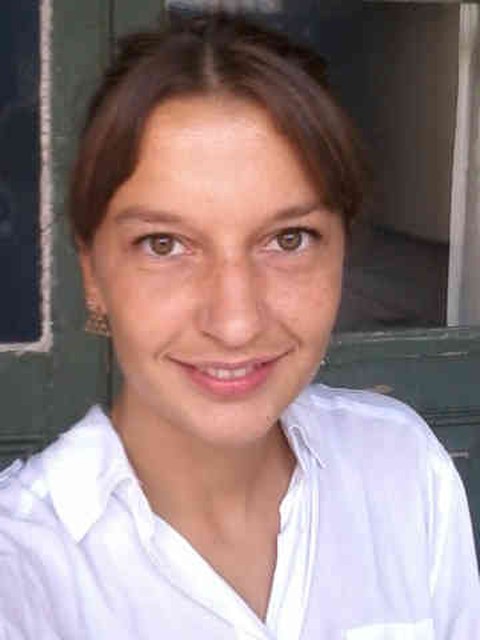
Ms Josefina Achaval Torre
Country of origin: Argentina
Workfield: Regional administration
Position while attending the course: Comisión Técnica Interdisciplinaria at Secretaría de Ambiente y Cambio Climático Cordoba
Academic background: Environmental Management (B.Sc.)
Responsibilities:
► As a member of the Interdisciplinary Technical Commission, Ms Josefina Achaval Torre provides a technical evaluation of Environmental Impact Studies presented to the Ministry of Environment and Climate Change in Córdoba Province.
Ms Alexandra Aguiar Pedro
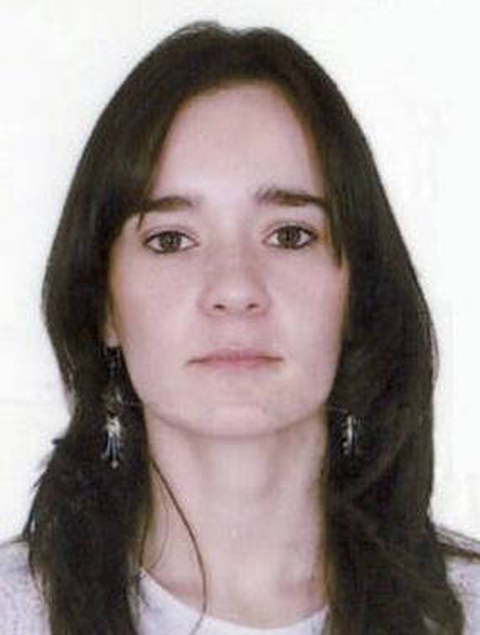
Ms Alexandra Aguiar Pedro
Country of origin: Brazil
Workfield: Local administration
Position while attending the course: Technical Adviser at Municipal Housing Secretariat São Paulo
Academic background: Physical Geography (M.Sc.)
Responsibilities:
► Monitoring the actions of the Secretariat according to the guidelines of housing policy;
► Guiding the other departments in the construction of plan- ning and monitoring tools;
► Guiding the other departments in the construction of plan- ning and monitoring tools;
► Analysing information for revising the Sao Paulo Municipal Social Housing Plan;
► Promoting institutional collaboration.
Mr Alfred Michael Ahimbisibwe
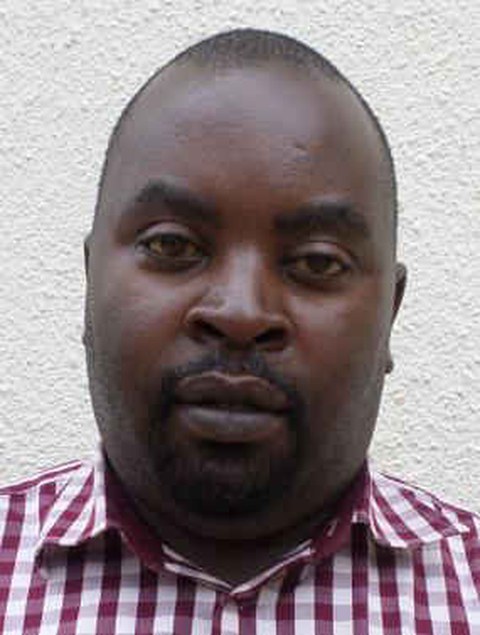
Mr Alfred Michael Ahimbisibwe
Country of origin: Uganda
Workfield: Local administration
Position while attending the course: Environment Officer at Kabale Municipal Council
Academic background: Environment and Disaster Management (B.Sc.)
Responsibilities:
► Environmental Mainstreaming in the local government;
► Ensuring proper use of natural resources;
► Enforcing environmental compliance;
► Environmental Education;
► Reviewing EIA reports for development projects;
► Managing a CDM project on solid waste composting
Mr Khusniddin Alikulov
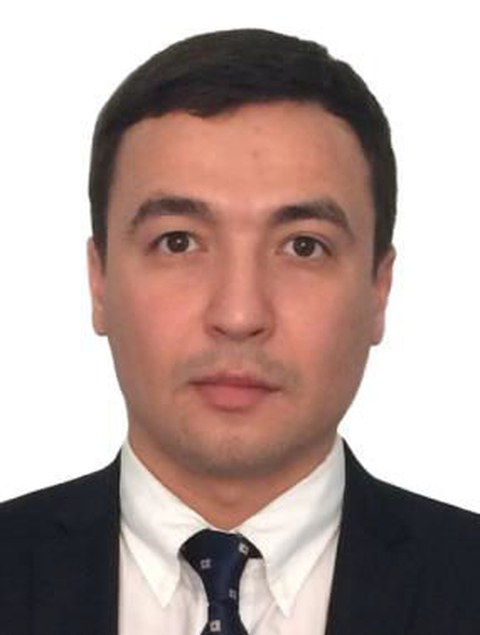
Mr Alfred Michael Ahimbisibwe
Country of origin: Uzbekistan
Workfield: Fed./Nat. Company
Position while attending the course: Engineer of the Department for Strategic Planning and Developing Production at AO “Sirdaryo IES” a large scale power plant under the State Joint Stock Company “Uzbekenergo”, a large scale power plant under the State Joint Stock Company “Uzbekenergo”
Academic background: Engineering (M.Sc.)
Responsibilities:
► Promoting projects for improving energy efficiency in the power plant;
► Conducting technical proposals on applying renewable energy technologies;
► Assessment of energy-economic, environmental and other aspects of existing power units.
Mr Mkhitar Avetisyan
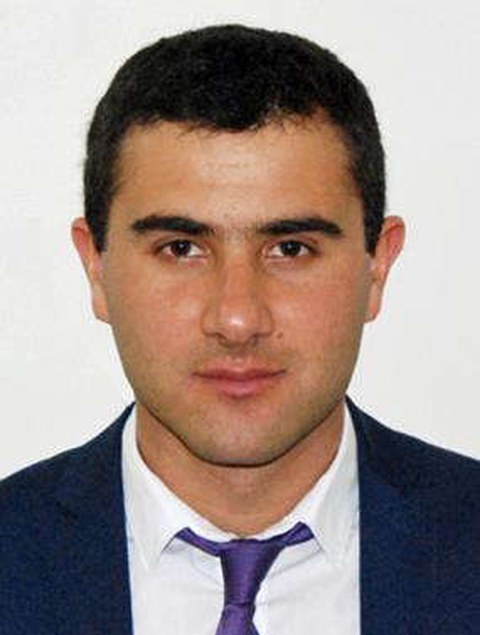
Mr Mkhitar Avetisyan
Country of origin: Armenia
Workfield: Fed./Nat. administration
Position while attending the course: Leading Specialist of the International Cooperation Department of the Ministry of Nature Protection
Academic background: Plant Growing Product Processing Technology (Ph.D.)
Responsibilities:
► Coordination of activities in the framework of international environmental agreements;
► Monitoring of the national plan of actions;
► Cooperation and coordination of works with different international organizations such as ADB, USAID, KfW, WWF etc.
Ms Vika Ekalestari
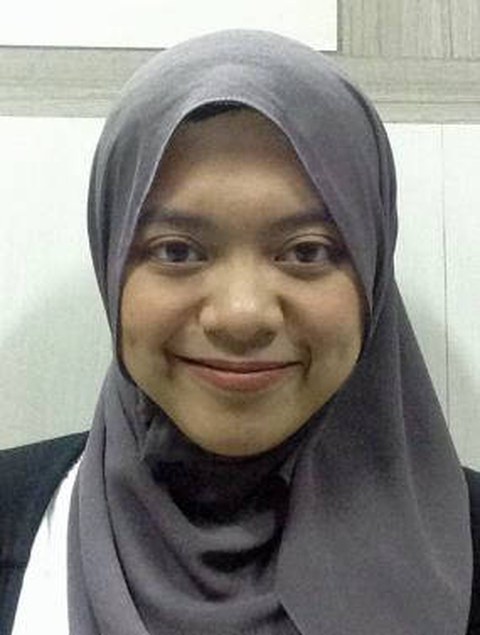
Ms Vika Ekalestari
Country of origin: Indonesia
Workfield: Fed./nat. administration
Position while attending the course: Wastewater Expert at Ministry of Public Works and Housing Republic of Indonesia Kebayoran Baru, Jakarta Selatan
Academic background: Air Quality Control, Solid Waste and Waste Water Process Engineering (M.Sc.)
Responsibilities:
►Provide advice on wastewater infrastructure development and management to provincial and municipal governments;
► Formulate national standards on wastewater infrastructure development and management;
► Training of small forest producers in soils;
► Manage loans and grants project on wastewater developement and management.
Mr Eduardo Francisco Esteves Vélez
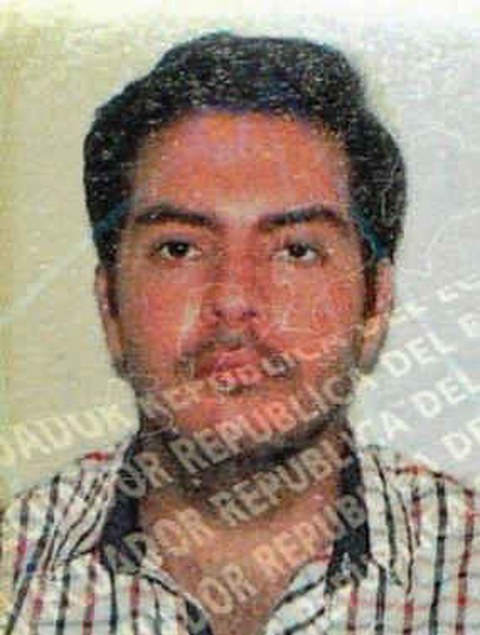
Mr Eduardo Francisco Esteves Vélez
Country of origin: Ecuador
Workfield: Regional NGO
Position while attending the course: Technical Coordinator at Bahia 2000 Foundation
Academic background: Agronomic Engineering (B.Sc.)
Responsibilities:
► Developing and managing environmental and social projects;
► Supervision and coordination of projects;
► Developing and implementing control systems;
► Reporting to Board of Directors and Assembly Members.
Ms Gabriela de Jesús Fernández Tay
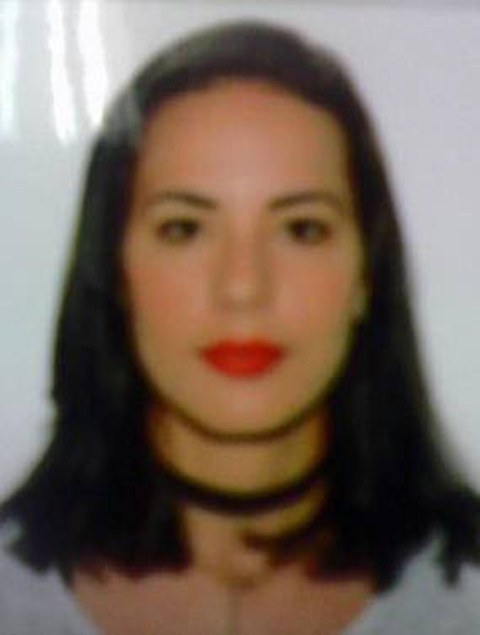
Ms Gabriela de Jesús Fernández Tay
Country of origin: Cuba
Workfield: Regional administration
Position while attending the course: Specialist for Science, Technology and the Environment at Management Unit in Cienfuegos Punta Gorda
Academic background: Sociology (B.Sc.)
Responsibilities:
► Carrying out the social perception analysis in the Studies of Danger, Vulnerability and Risk;
► Participating in the UNDP International Project “Connecting Landscapes, Conservation of Mountain Ecosystems” as coordinator of the socio-demographic component.
Mr Fisseha Berhe Halefom
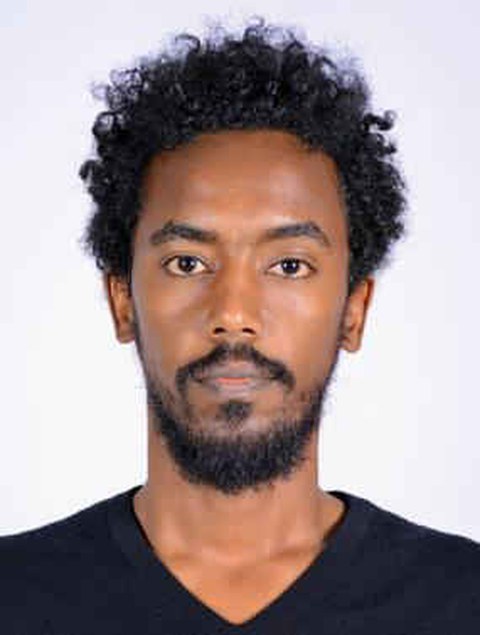
Mr Fisseha Berhe Halefom
Country of origin: Ethiopia
Workfield: Fed./nat. University
Position while attending the course: Lecturer at Mekelle University, School of Civil Engineering Mekelle
Academic background: Hydraulic Engineering (M.Sc.)
Responsibilities:
► Delivering introductory and advanced level water resources and environmental engineering courses within the university;
► Involved in research activities within the university with focus on community development activities;
► Supervision of final year project papers of the graduating class.
Ms Lourdes Amparo Lares Acero
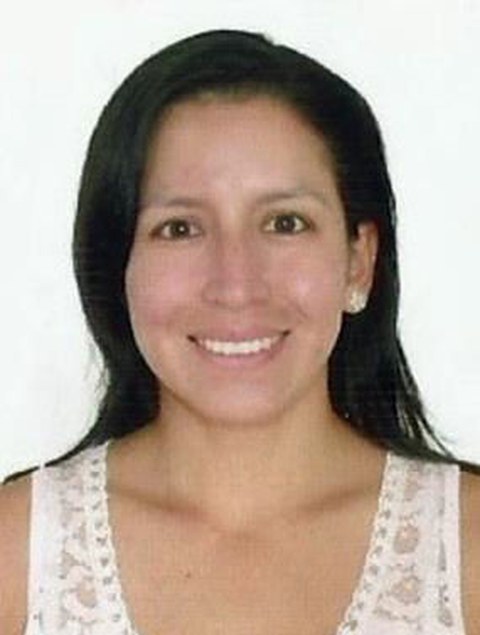
Ms Lourdes Amparo Lares Acero
Country of origin: Peru
Workfield: Fed./nat. NGO
Position while attending the course: National Advisor of Agroecological Markets Development at Red de Agricultura Ecológica del Perú – RAE (Peruvian Organic Agriculture Network), Lima
Academic background: Amazonian Studies (M.Sc.)
Responsibilities:
► Supporting Peruvian Organic Agriculture Network partner institutions to develop strategies for environmentally and economically sustainable value chains of agro-ecological local markets;
► Promoting agro-biodiversity, defense of food sovereignty, care and conservation of natural resources and promotion of fair markets for organic producers and consumers to overcome rural poverty.
Ms Liu Zhuo
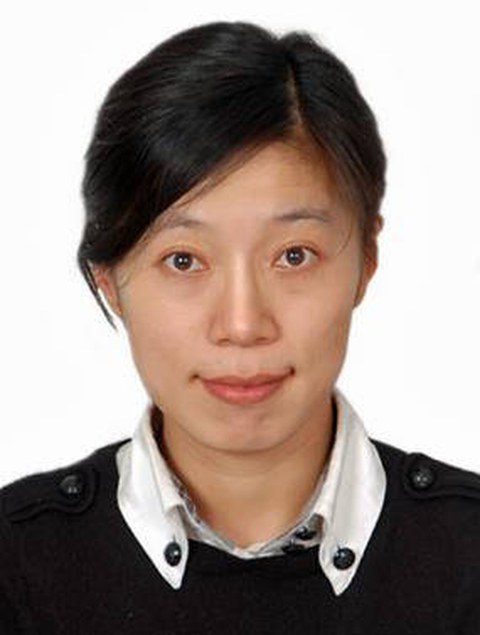
Ms Liu Zhuo
Country of origin: China
Workfield: Fed./nat. administration
Position while attending the course: Professor and Academic Leader of Water Policy Research at Development Research Center of Ministry of Water Resources Beijing
Academic background: Envionmental Science and Engineering (Ph.D.)
Responsibilities:
► Participating in water policy research for more than ten years in DRC, with involvement in water planning, irrigation management, water resources management and other fields; Has been to most provinces in China to investigate water management.
Mr Maksym Makukha

Mr Maksym Makukha
Country of origin: Ukraine
Workfield: Environmental Policy
Position while attending the course:Technical Expert at NGO "Ekoltava" Poltava
Academic background: Mechanical Engineering (M.Sc.)
Responsibilities:
► Consulting local authorities and citizens;
► Working on project CLEEN (Civil society energy efficiency network);
► Involved in development of local environmental plans and the regional sustainable energy action plan;
► Supporting the sustainable development of municipalities.
Ms Francisca Jacob Malembeka
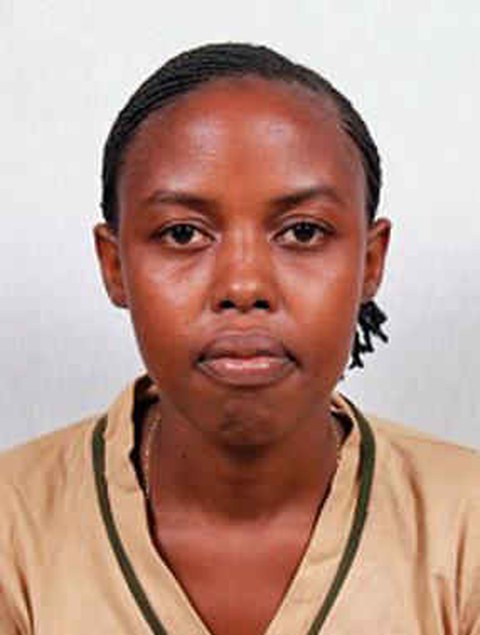
Ms Francisca Jacob Malembeka
Country of origin: Tanzania
Workfield: Fed./nat. administration
Position while attending the course: Senior Wildlife Officer-CITES Desk at Ministry of Natural Resources and Tourism, Wildlife Division Dar es Salaam
Academic background: Wildlife Management (M.Sc.)
Responsibilities:
► Advising the director of wildlife on extraction quotas of species;
► Liaising between the government and individuals who have invested in wildlife farming, zoos and ranches and in particular new establishments;
► Preparing export and import CITES certificates;
► Raising public awareness on conservation and investment/business opportunities in the conservation.
Ms Sandar Myint
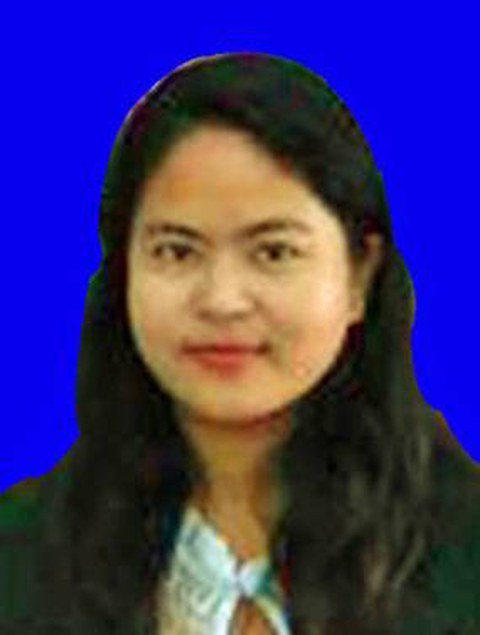
Ms Sandar Myint
Country of origin: Myanmar
Workfield: Fed./nat. administration
Position while attending the course: Assistant Manager at Myanma Timber Enterprise, Ministry of Natural Resources and Environmental Conservation
Academic background: Forestry (B.Sc.)
Responsibilities:
► Assistant in implementing the Forest Law Enforcement, Governance and Trade Voluntary Partnership Agreement (FLEGT VPA) Process, including inspection of timber trade companies and communication with EU groups.
Mr Ramoudane Orou Sannou

Mr Ramoudane Orou Sannou
Country of origin: Benin
Workfield: Local NGO
Position while attending the course: Projects Officer at ONG Homme et Developpement (Hd-ONG) Parakou
Academic background: Agricultural Economics and Rural Development (M.Sc.)
Responsibilities:
► Designing projects proposals in the field of agriculture in general and specifically projects on food security and sustainable land management;
► Training in the field of Sustainable Land Management.
Ms Melano Sirbiladze
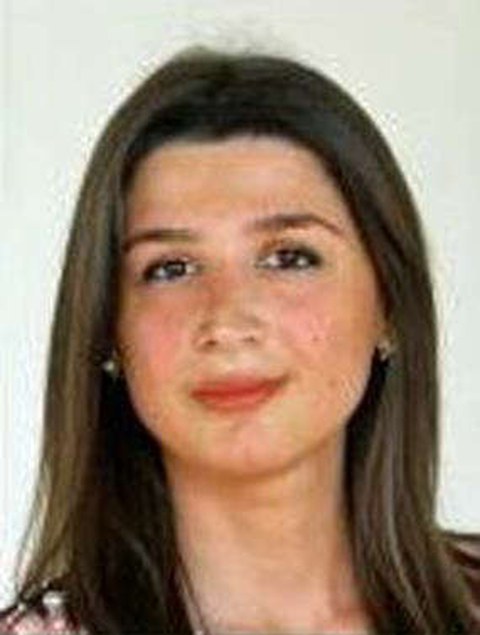
Ms Melano Sirbiladze
Country of origin: Georgia
Workfield: Local administration
Position while attending the course: Leading Specialist in Economic Development Division of City Hall of Kutaisi Municipality at City Hall of Kutaisi Municipality Kutaisi
Academic background: Business Administration (B.Sc.)
Responsibilities:
► Developing projects to support local business growth;
► Building partnerships with business networks;
► Helping to raise public awareness;
► Promote city greening and conduct eco-friendly projects;
► Developing a communication strategy and sectoral strategies.
Mr Emmanuel Nibah Suka
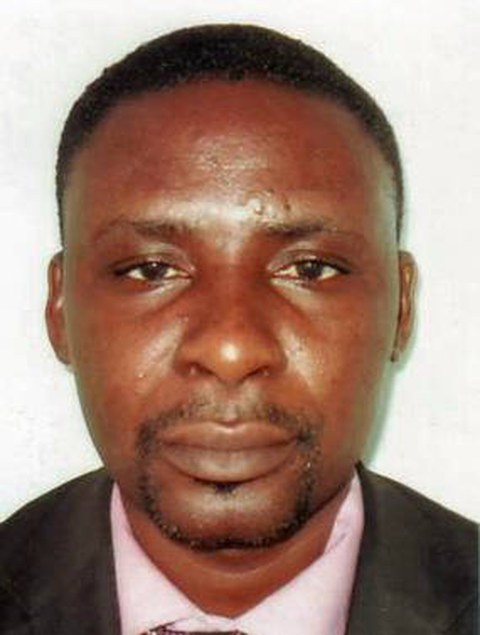
Mr Emmanuel Nibah Suka
Country of origin: Cameroon
Workfield: Federal/National administration
Position while attending the course: Division Chief for Environmental Inspections and Evaluations at Ministry of Environment, Protection of Nature and Sustainable Development, Buea, South West Region
Academic background: International Environmental Law (M.Sc.)
Responsibilities:
► Environmental inspection and evaluation of classified establishments of forest management units, exploitation sites for timber, agricultural areas, forest reserves, industries, protected areas, degraded forest and landscapes;
► Environmental impact assessments; Writing reports on management options.
Mr Clement Geegbeh Tweh
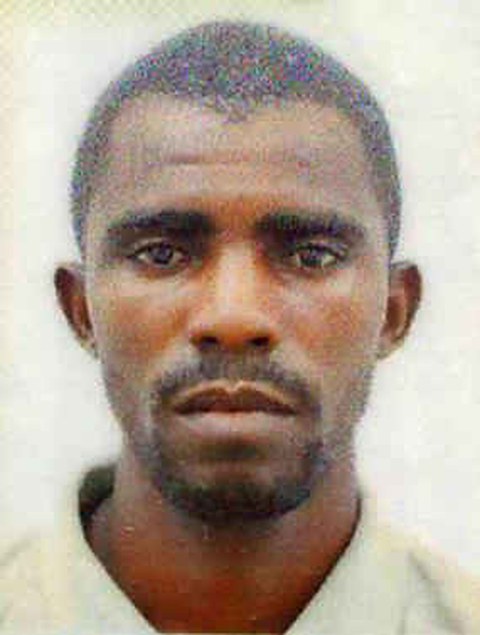
Mr Clement Geegbeh Tweh
Country of origin: Liberia
Workfield: Fed./nat. administration
Position while attending the course: Zone Warden Proposed Grebo National Park at Forestry Development Authority – Liberia Monrovia
Academic background: Biology of Conservation (M.Sc.)
Responsibilities:
► Leading and coordinating all wildlife monitoring activities in Liberia (Grebo National Park and its communities within zone 1), data management and analysis, report-writing, management of human resources (Communities, rangers and NGOs within the zone), logistics, finances and administration.
Mr Dhruv Verma
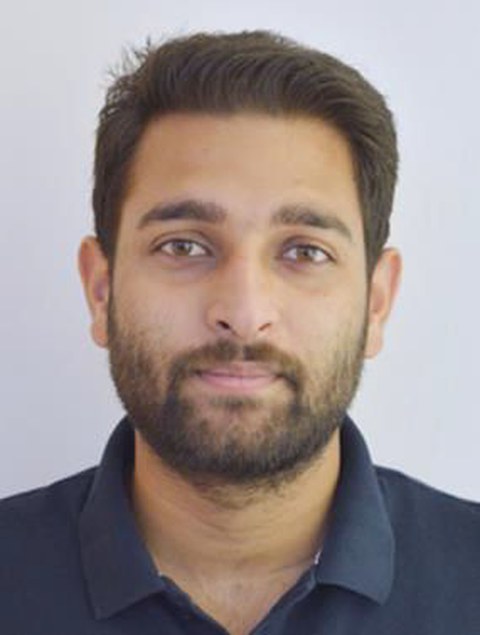
Mr Dhruv Verma
Country of origin: India
Workfield: Regional administration
Position while attending the course: World Heritage Assistant at UNESCO Category 2 Centre on World Natural Heritage Management and Training for Asia and the Pacific Region, Wildlife Institute of India
Academic background: Environment Management (M.Sc.)
Responsibilities:
► Undertake research on identified priority areas related to natural world heritage protection and management;
► Preparation of nomination dossier for inscription of a site on the UNESCO World Heritage site list;
► Administer World Heritage related capacity building programs.
Ms Mariela Cecilia Yapu Alcázar
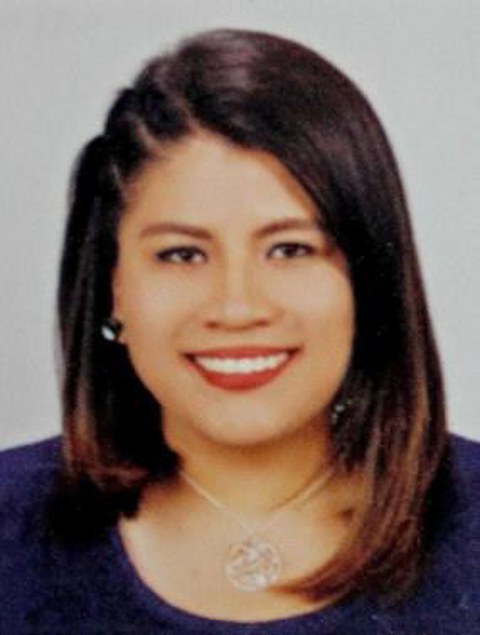
Ms Mariela Cecilia Yapu Alcázar
Country of origin: Bolivia
Workfield: Local university
Position while attending the course: Consultant at Instituto de Ecología, Universidad Mayor de San Andrés San Andrés
Academic background: Biology (B.Sc.)
Responsibilities:
► Planing and developing activities for the design of strategies for improving the welfare conditions of bovine dairy cattle;
► Supports the implementation of techniques of sowing and harvesting of forage;
► Organizes community meetings to inform on the progress of the project.
Mr Chandara Yem
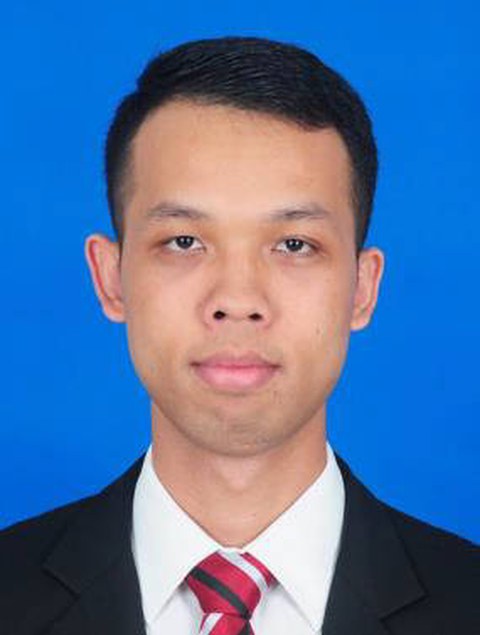
Mr Chandara Yem
Country of origin: Cambodia
Workfield: Fed./nat. administration
Position while attending the course: Technical Officer at Ministry of Environment, General Directorate of Environmental Protection, Department of Inspector and Law Enforcement, Phnom Penh
Academic background: Law (B.Sc.)
Responsibilities:
► Field work as an inspector of pollution , to ensure strict compliance with environmental legislation;
► Member of a technical working group for monitoring an Environmental Impact Assessment project;
► Assisting the lawmaker and Director-General in drafting laws, policies and regulations;
► Attending workshops, trainings, seminars and meetings with other ministries and stakeholders on issues related to pollution control and Environmental Impact Assessment project proposals.
(15 November 2017 - 8 December 2017 )
Represented countries of origin in the course:
| Bangladesh | Bhutan | Bolivia | Brazil (x2) | China | Colombia |
| Cuba | Ethiopia | Ghana | Indonesia | Ivory Coast | Jamaica |
| Namibia | Nigeria | Pakistan | Panama | Philippines | Sri Lanka |
| Tanzania | Zimbabwe |
Ms Abisola Gloria Abu
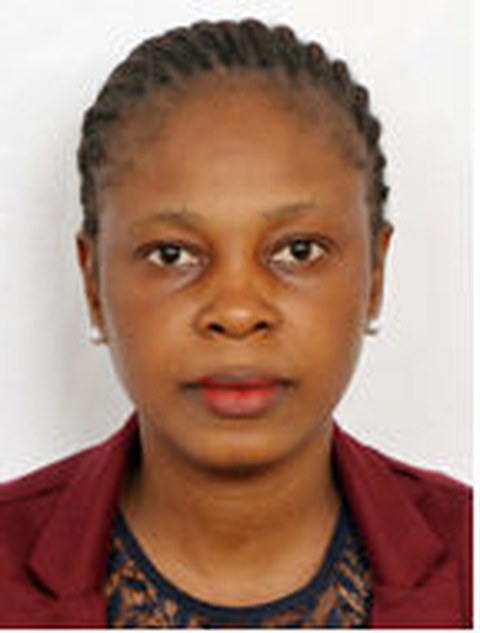
Ms Abisola Gloria Abu
Country of origin: Nigeria
Workfield: Regional administration
Position while attending the course: Principal Scientific Officer at Waste Management Division, Environmental Services DepartmentLagos State Ministry of the Environment, Lagos
Academic background: B.Sc. in Microbiology
Responsibilities:
► Monitoring of scavengers activities;
► organization of waste managementtraining in primary and secondary school in collaboration with the ClimateChange Division;
► together with facilitator, develop and coordinate policiesrelating to waste management, organize town hall meetings in communities etc.
Mr Ofori Acheampong
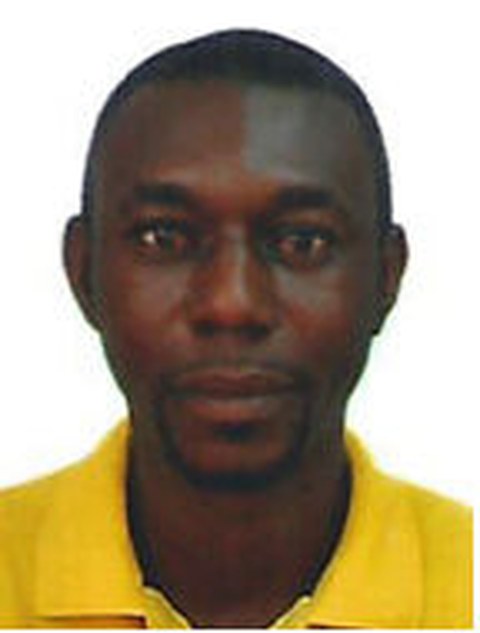
Mr Ofori Acheampong
Country of origin: Ghana
Workfield: Local administration
Position while attending the course: Municipal Officer of Department of Community Development-UpperDenkyira East Municipal Assembly
Academic background: B.Sc. in Population Studies
Responsibilities:
► Representing the regional director at the municipal level andperforming administrative and managerial functions such as staff monitoring, supervision, and capacity building;
► Facilitating development at the rural level.
Mr Eromonsele Akhidenor
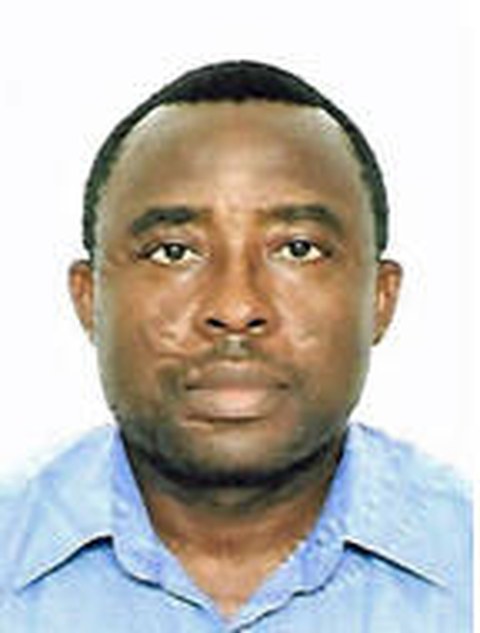
Mr Eromonsele Akhidenor
Country of origin: Jamaica
Workfield: Fed./nat. administration
Position while attending the course: Research Officer at National Environment and Planning Agency Kingston
Academic background: M.Sc. Natural Resource Management
Responsibilities:
► Research to determine and report on the types, geographical extent, status and threats to the natural and built environment;
► Providing advice on the status and trends in environmental research, modeling andimpact assessments;
► Providing empirical data to inform national environmental policy.
Profile:
Eromonsele Akhidenor enrolled to the UNEP/UNESCO/BMUB course program in order to acquire necessary skills to build a more robust, resource efficient, cleaner production and waste management system for Jamaica. His background spans the fields of Geo-Informatics and Natural Resource Management, Land Use, Hazard Mapping and Vulnerability Assessment, Agricultural Disaster Risk, Resource Efficiency, Cleaner Production and Waste Management. Eromonsele's specific interest is in advancing an evidence-based approach in the development of environmental and planning policies that addresses emerging sustainability challenges.
Mr André Luiz Felisberto França
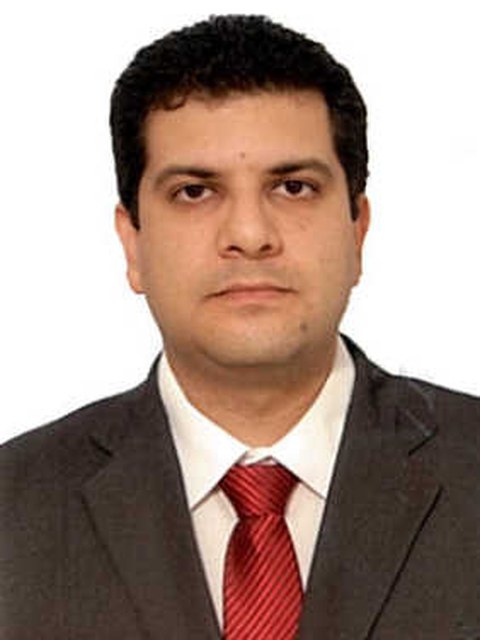
Mr André Luiz Felisberto França
Country of origin: Brazil
Workfield: Environmental quality and control
Position while attending the course: Deputy Director of Post-licensing, Instituto Estadual do Ambiente – INEA (Environmental Agency of Rio de Janeiro State), Rio de Janeiro - Brazil
Academic background: M.Sc. in Chemical and Biochemical ProcessesTechnology (Chemical Engineering), Federal University of Rio de Janeiro (UFRJ)
Responsibilities:
► Applying knowledge, tools and techniques for effective management in projects related to sustainable waste management, pollution preventionand environmental protection and monitoring;
► providingtechnical subsidies for the elaboration of laws and technical standards.
Profile:
André Luiz Felisberto França is working as Deputy Director of Post-licensing in Instituto Estadual do Ambiente – INEA, that is the Environmental Agency of Rio de Janeiro State, in Brazil. He provides technical advice in the areas of activity of the Board, which includes the follow-up of environmental licenses, the control of sources of environmental pollution, Waste Management, Cleaner production, Sustainable resource management, Environmental inspection, Environmental quality monitoring, and attendance of technological emergency environmental occurrences with hazardous chemicals. Furthermore, André is responsible for drafting laws, decrees, resolutions and technical standards related to environmental inspection, control and quality,for the coordination/participation in strategic environmental projects for the institution, the elaboration of strategic planning, the coordination, definition and monitoring of the goals of the Board's teams and follow-up of the Individual performance assessments, and the elaboration of the Annual Activity Report, based on the consolidation of the results of the teams that comprise the Board of Executive Officers.
Mr Cássio Araujo de Oliveira Rodrigues

Mr Cássio Araujo de Oliveira Rodrigues
Country of origin: Brazil
Workfield: Solid Waste Management
Position while attending the course: Environmental Analyst, Ministry of Environment
Academic background: BSc. in Environmental Engineering
Responsibilities:
► Assist and assess the execution of Brazil's National Policy on Solid Waste;
► Analysis of bills regarding solid waste subjects;
► Monitoring of internationaltechnical cooperation projects;
► Training municipalities for solid wastemanagement planning;
► Managing of distance learning courses.
Profile:
Cássio Araujo de Oliveira Rodrigues is an Environmental Analyst, working at the Department of Environmental Quality and Waste Management, linked to the Secretariat of Water Resources and Environmental Quality of the Ministry of Environment of Brazil. His duties are related to planning and management activities as well as technical support aiming at the implementation and monitoring of the National Policy on Solid Waste. Càssio perceives the UNEP/UNESCO/BMUB training program as an opportunity to have contact with international experts that work with urban and environmental management, including waste management, and finds this a good opportunity to exchange information and discuss the issues and challenges of developing countries. By participating in the program, Càssio intended to achieve the knowledge of the German expertise in sustainable resource management, focusing on solid waste management, considering the successful model implemented in Germany. The topics of circular economy and assessment of the life cycle of products are of his particular interest and he aims to share his knowledge and experience obtained with the course program with the staff of the Ministry of Environment and spread it to the stakeholders of the National Policy on Solid Waste. Càssio also intends to bring an international network for technologies and good practices on solid waste management to Brazil.
Mr Aka Hippolyte Assoumou
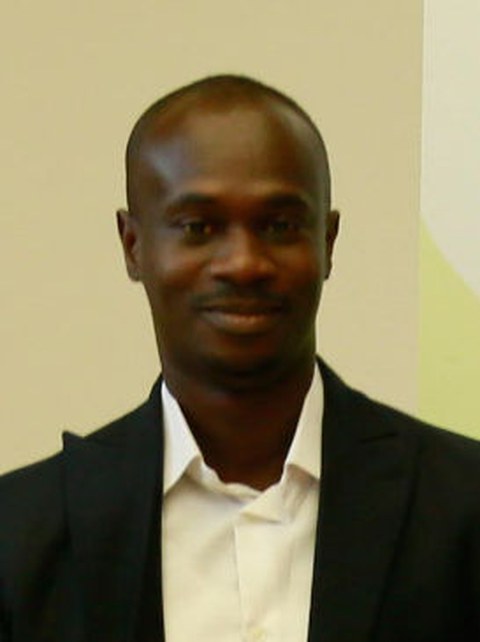
Mr Aka Hippolyte Assoumou
Country of origin: Ivory Coast
Workfield: Education for Sustainable Development
Position while attending the course: Program and Sustainability Coordinator at Ballack-Hyper's Holding Yamoussoukro
Academic background: M.A. in Global Leadership and Sustainable Development
Responsibilities:
► In charge of planning, coordination, budgeting, implementation,supervision, monitoring and evaluation (M&E) of all the organization'sprojects;
► Focal point for all sustainability- related projects.
Profile:
As the focal point for all sustainability-related projects, Aka H. Assoumou’s main tasks include planning, coordinating, budgeting, supervising implementation, monitoring and evaluation (M&E) of all the organization's projects. For that purpose, he drafts TORs, reviews the group’s action plans and activities, and provides advisory support to the Management Board on goals, future plans and directions. Ballack-Hyper’s Holding is positioning itself as an authoritative community-based and non-profit sustainability think tank, specialized in education for sustainable community development, with main base in Yamoussoukro - Côte d’Ivoire (and intends to span its activities over the West-African sub-region).
Aka’s participation in the CIPSEM course on “Resource Efficiency – Cleaner Production and Waste Management” has enabled him to learn from the German state-of-the-art expertise and know-how on the topic, professionally developed at TU Dresden. The course content is comprehensive and provides an exceptional exposure to resource efficiency and waste management, as well as vital knowledge on cleaner production, that are essentials for a real sustainable future of communities worldwide, and specifically in developing nations.
In addition to the UNEP/UNESCO/BMUB course fellowship, Aka had the privilege to be awarded a Fulbright scholarship (U.S. Department of State exchange program) to study sustainable development (social science) at Hawaii Pacific University (Honolulu), and be admitted into the selective and distinguished body of graduates of the University of Illinois at Chicago’s Energy Initiative (Summer Institute of Sustainability and Energy). He also received a Mashav award (Ministry of Foreign Affairs, Israel) to study "Local Assets for Economic and Community Development" at the Weitz Center for Sustainable Development, Rehovot (Hebrew University of Jerusalem).
Mr Lynn Raul Carranza Mendez
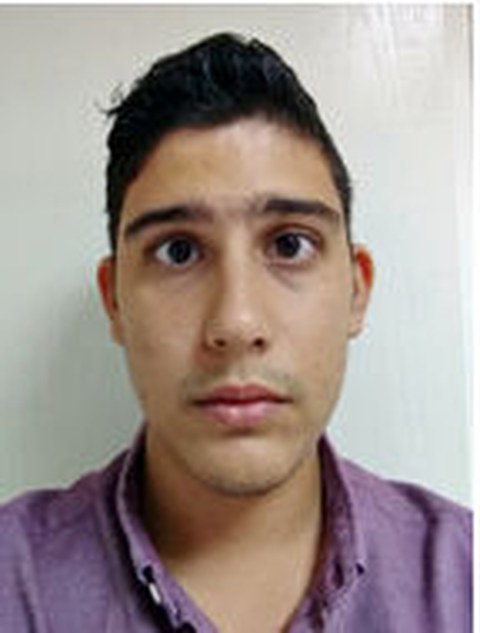
Mr Lynn Raul Carranza Mendez
Country of origin: Panama
Workfield: Federal/National Administration
Position while attending the course: Zero Waste Program Coordinator at Panama City Municipality
Academic background: B.Sc. Waste Management and Water Treatment
Responsibilities:
► Planing and Design of the new waste recollection system for the city revitalisation.
Mr Andrew Chinyepe
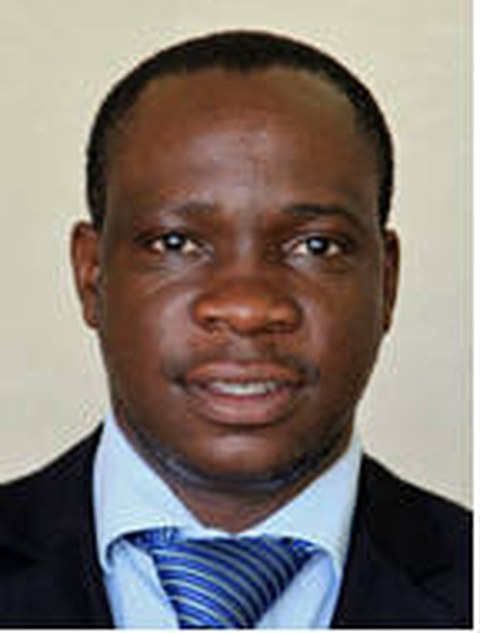
Mr Andrew Chinyepe
Country of origin: Zimbabwe
Workfield: Resource Efficient, Green Industry and Environment
Position while attending the course: Senior Research Scientist at Scientific and Industrial Research and Development Centre/ Zimbabwe National Cleaner Production Centre (SIRDC-ZNCPC)
Academic background: M.Sc. Business Administration; M.Sc. Integrated Water Resources Management
Responsibilities:
► Coordinating Resources Efficient and Cleaner Production (RECP), GreenIndustries, Environmental Audits and Impact Assessments projects;
► Assessingand providing technical advice to the industry and local Facilitates in capacity development programs authorities on waste and water resources management;
► Facilitating in capacity development programs.
Profile:
Mr Andrew Chinyepe is an Industrial Water Use Efficiency and Environmental Management expert and an UNIDO/University of Bahrain green industries certified professional. He is experienced in Resource Efficient and Cleaner Production (RECP), and Environmental Impact Assessments and member of the Business Council for Sustainable Development in Zimbabwe. Andrew's institute is a registered member of RECPnet and is responsible for providing industries with technological solutions for sustainable development. In this context, the UNEP/UNESCO/BMUB course program is the best opportunity for him to deepen his knowledge on circular economy, modern waste management and resource efficient practices as well as to acquire technical skills on life cycle assessment and system strategies.
Ms Yeshey Choden

Ms Yeshey Choden
Country of origin: Bhutan
Workfield: Environmental management and services
Position while attending the course: Environment officer in Thimphu
Academic background: B.Sc. Biotechnology
Responsibilities:
► monitoring and compliance in development projects under EAact 2000 Bhutan;
► Monitoring of water and air related activities;
► Reviewingand assessing project proposals for environmental clearance and maintenance of databases;
► Conducting site visits for field verification of project proposals.
Profile:
Ms Yeshey Choden is working as an environment officer in Thimphu municipality and has been mostly involved in conducting monitoring and compliance of development projects (public & private) under environment rules and regulations of Bhutan. She also reviews and assesses project proposals for environmental clearance (permits) and maintains a database. Furthermore Yeshey is serving as counterpart to japanese Environment & Sanitation Centre in 2nd phase project on Thimphu municipality solid waste management and is actively involved in creating environmental awareness in primary school level and small scale composting in household level in Thimphu city. Due to rapid urbanization the municipality is under growing pressure in providing a sound management of solid waste. As Bhutan progresses towards aiming for “zero waste” by 2030, it has become a challenging task. Nevertheless, as a developing country, Bhutan can always look up to developed countries in terms of capacity building and know-how on technologies. Yeshey values the UNEP/UNESCO/BMUB course as a golden opportunity to develop her knowledge and understanding of sustainable solid waste management strategies and disposal systems.
Mr Siegfred Flaviano
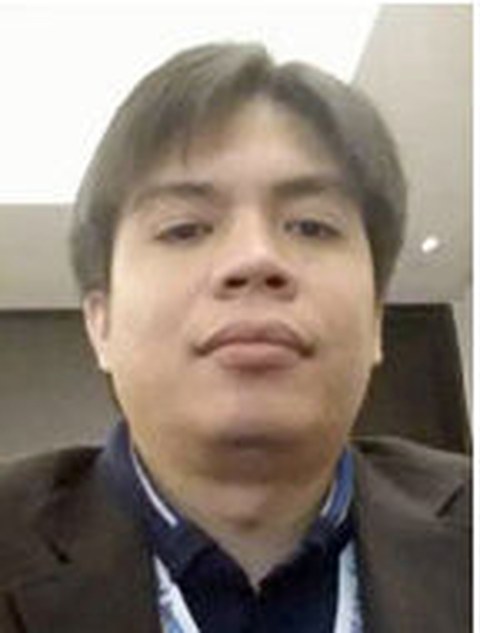
Mr Siegfred Flaviano
Country of origin: Philippines
Workfield: Local administration
Position while attending the course: Provincial Environment and Natural Resources Officer at Provincial Government of South Cotabato, Provincial Capitol CMPD, Koronadal City
Academic background: M.Sc. in Tropical Risk Management
Responsibilities:
► Head of the Provincial Environment Management Office tasked to formulate and implement plans programs and projects on sustainable solid waste management, air pollution control , water quality management, forest and Inland waters management and regulation of small scale mining.
Mr Girmaye Teshome Hailu
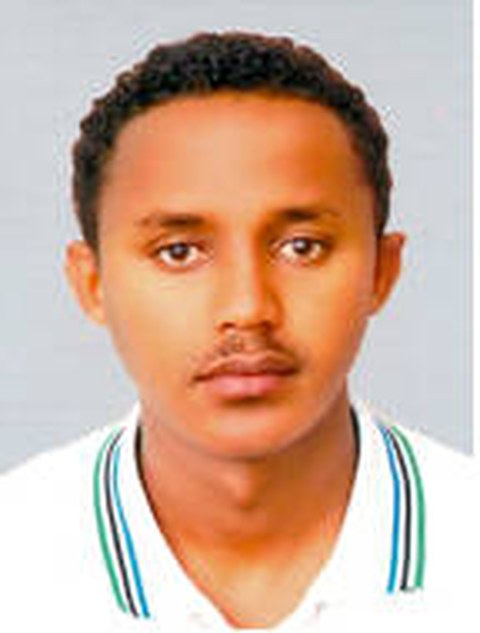
Mr Girmaye Teshome Hailu
Country of origin: Ethiopia
Workfield: Federal/National administration
Position while attending the course: Senior GHG Emission MRV Expert at Ministry of Environment Forest and Climate ChangeGHG emission MRV Directorate, Addis Ababa
Academic background: M.Sc. in Environmental Science
Responsibilities:
► Establish Internal Process and schedule to ensure that the national GHGinventory team produces accurate emission estimates, to ensure incorporation of the inventory in the NC and BUR for submit ion to the UNFCCC and toassist sector leads to prepare and implement sector specific workplans.
Mr Mohammad Monower Hossain
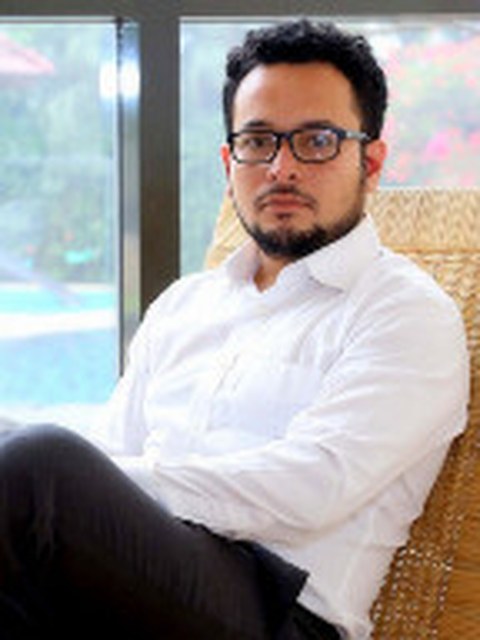
Mr Mohammad Monower Hossain
Country of origin: Bangladesh
Workfield: Industrial Environment
Position while attending the course: Senior Deputy Secretary (Environment), Bangladesh Garment Manufacturers and Exporters Association
Academic background: M.Sc. in Development Studies
Responsibilities:
► Leading BGMEA Environment Cell, and take over all the activities nationalinternational in the area of environmental sustainability and resourceefficiency.
Profile:
Presently Mohammad Monower Hossain is working as a Sr. Deputy Secretary in BGMEA the apex trade body of Bangladesh garment sector. Prior to that he worked for Bangladesh Export Processing Zones Authority (BEPZA) as environmental counselor in an IFC funded project at Dhaka EPZ and for GIZ, Bangladesh as environmental consultant to implement EU-EMAS in some selected factories. Have a broader overview in the area of RMG and textile sector particularly on environmental sustainability issues. Mohammmed is a certified EMS auditor, chemical management trainer. Freelance writer and contributor to the BGMEA publication named “The Apparel Story” and is working as the head of environment cell in my organization. Focal point of Department of Environment, Government of Bangladesh, member of technical advisory committee of PaCT project, member of textile sustainability platform (TSP). On this backdrop, the Fellowship was a good opportunity for him to learn about policy, technology and management systems and to improve his skills to conduct his current activities more meaningfully.
Ms Randika Anjalie Jayasinghe
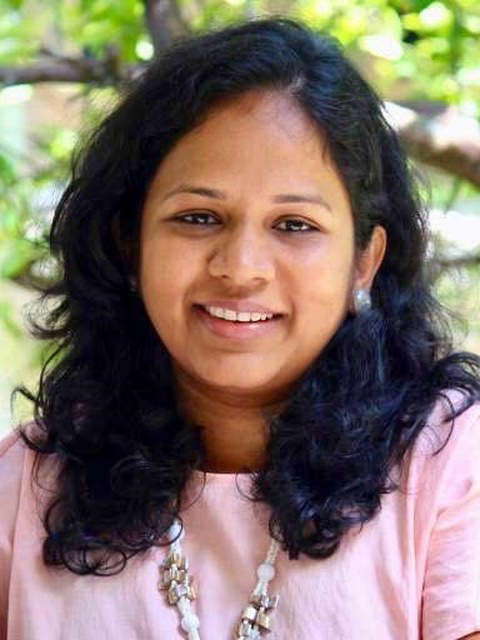
Ms Randika Anjalie Jayasinghe
Country of origin: Sri Lanka
Workfield: Environmental Engineering
Position while attending the course: Senior Lecturer / Project Coordinator at University of Sri Jayewardenepura, Faculty of Technology Gangodawila, Nugegoda
Academic background: Doctor of Philosophy (PhD)
Responsibilities:
► Teaching;
► Coordinates and manages the project "Australia-Sri Lankauniversity partnerships to develop community-based waste upcyclingbusinesses".
Profile:
Randika Jayasinghe is a practitioner, a researcher and an academic who works in the area of waste management in Sri Lanka. Her main interest is on waste upcycling - exploring creative and innovative ways to use discarded materials, particularly non-degradable synthetic materials that are not normally recycled through conventional recycling methods. She is an Australia Awards Alumni and a PhD of the University of Western Australia. Her PhD research focused on the practical feasibility and perceived social impact of an initiative to develop community-based projects for waste management in Sri Lanka. Randika currently coordinates the Australian Government funded project, ‘Australian-Sri Lankan University partnerships to develop community-based upcycling businesses’. She also organized the first “Waste to Art” exhibition in Sri Lanka; an open exhibition that showcased around 100 creative works made out of discarded materials. Randika applied for the UNEP/UNESCO/BMUB Fellowship programme to learn more about new concepts and innovative technologies in waste management, resource conservation and circular economy. During the one month programme, she has got the opportunity to first-hand experience of some of the best practices in waste management in Germany and she hopes to apply this knowledge in her teaching and research.
Ms Sofia Khalid
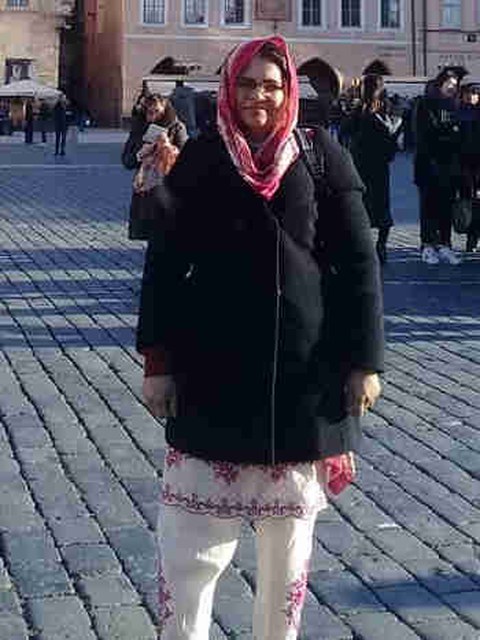
Ms Sofia Khalid
Country of origin: Pakistan
Workfield: Environmental Sciences
Position while attending the course: Assistant Professor at Environmental Sciences Department, Fatima Jinnah Women University,Rawalpindi
Academic background: PhD in Environmental Biology
Responsibilities:
► To develop and teach new courses in the environmental sciencesdepartment and to supervise research students for B.Sc., M.Phil and PhDthesis;
► Member of several committees of stakeholders at national levele.g. reviewer for EIA's submitted to Pak EPA .
Profile:
Sofia Khalid is currently working as Assistant Professor in the Environmental Sciences Department of Fatima Jinnah Women University, Rawalpindi, Pakistan. Her main job involves teaching and research on different environmental issues. Currently she is teaching a course on Environmental Management as well as on Waste Management in the university. Waste management is an emerging environmental problem in Pakistan where population is increasing with greater waste production concomitant with space limitations for waste disposal. Sofia was particularly interested in attending the UNEP/UNESCO/BMUB course because she wanted to know in detail about the updated concepts of waste management as well as new resource efficient methods/technologies for waste management. This course gave her the opportunity not only to learn about Waste management systems of Germany but she came to know about the success stories as well as problems in waste management in other developing parts of the world from her fellow participants in this course. Sofia has supervised and also is currently supervising several projects of B.Sc., M.Phil and PhD students on different environmental issues. She has several publications in peer reviewed journals and is often invited by the ministry of Climate Change Pakistan to different environment related policy meetings.
Ms Christi Findje Mutota
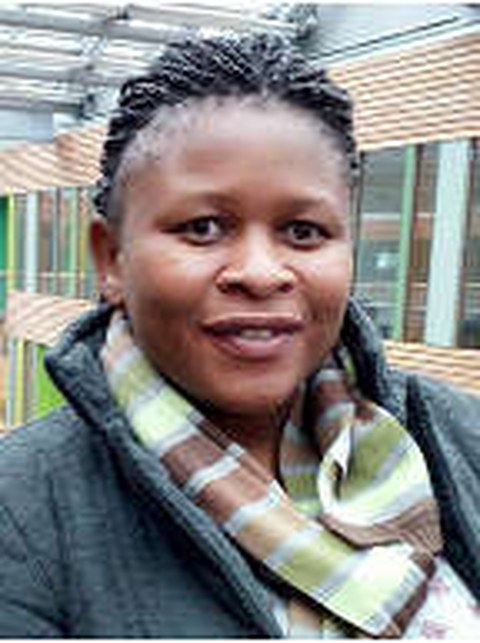
Ms Christi Findje Mutota
Country of origin: Namibia
Workfield: Administration
Position while attending the course: Solid Waste & Sanitation Supervisor at Gobabis Municipality
Academic background: M.Sc. in Public Management
Responsibilities:
► Oversees and coordinates the effective and efficient operation of the solidwaste management and sanitation department in the Gobabis municipalcouncil, including the daily collection of household and other wasteand dump site management;
► Waste management of Gobabis town.
Profile:
Christi Findje Mutota is a supervisor for the Solid Waste and Sanitation department within the municipality of Gobabis. Her main duties are to coordinate the effective and efficiency operation of the Solid Waste and Sanitation department in her town, which involves the process of waste management from generating, collecting to disposal. She is also responsible for community education and awareness, as well as information sharing with the stakeholders on waste and general sanitation. Furthermore, she is involved in promoting environmental education on a national level, through NEEN (Namibia Environmental Education Network), which mainly educates youth on environmental issue through information sharing and capacity building. Christie applied for the UNEP/UNESCO/BMUB course because she felt that she needed to be capacitated in her field of work, and through this fellowship she would gain the knowledge she needed to improve the waste management situation in her town and promote the reduction of waste generation as well as recycling of waste in Namibia as a whole. Her current community awareness program aims to educate the community on waste reduction, effected of littering, as well as looking at small scale income generating activities from waste.
Ms Analia Mayte Ricaldez Hurtado
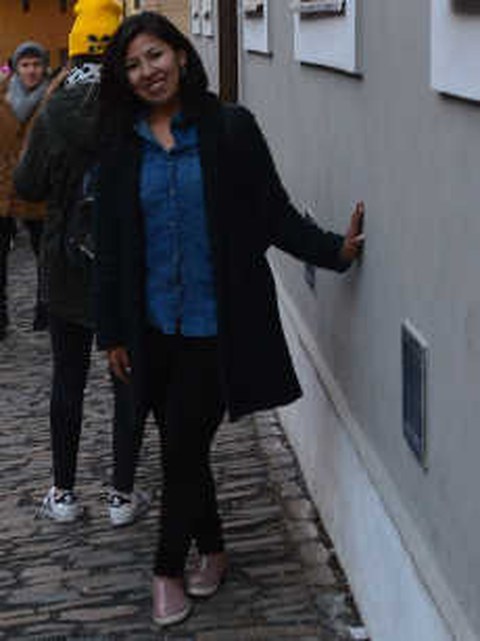
Ms Analia Mayte Ricaldez Hurtado
Country of origin: Bolivia
Workfield: Environmental Management, Sustainability and Energy Efficiency
Position while attending the course: Project Engineer at TECAP Global Solutions S.R.L., La Paz
Academic background: Environmental Engineering (B.Sc.)
Responsibilities:
► Developing and managing projects in the environmental, sustainability,occupational health and safety and energy area, giving clients theeasiest solutions and innovative ideas trying to bring new businessopportunities for the organization.
Profile:
Analia Mayte Ricaldez Hurtado is working as a Project Engineer developing Energy Efficiency programs, Environmental Impact Assessments, Environmental Sheets and Environmental Monitoring and inspections in TECAP Global Solutions S.R.L in La Paz Bolivia. She is also involved in occupational health and safety for the company's laboratory and designing the process and procedures to prevent its environmental impact. Analia assists and analyzes services of environmental risk and other services which could give easy solutions to their clients in the private and public sector and in all production activities (mining, oil and gas, industrial, etc.). She also completed a training of sustainability in the supply chain in Brazil in 2013 and received a Diploma in Energy Efficiency in Pontifical Catholic University of Chile in Santiago. She applied for UNEP/UNESCO/BMUB course program to add and change her perspective in sustainability and resource efficiency and to be able to develop and apply this important topic in her country. Analia participated in volunteering as a teacher for children in small schools in environmental education with The Coca Cola Company and currently in a volunteering collective “Reaccion Climatica” for the diffusion and promoting participation of the population in climate change problems in Bolivia.
Ms Agripina Focus Tarimo

Ms Agripina Focus Tarimo
Country of origin: Tanzania
Workfield: Environmental Science and Management
Position while attending the course: Environmental Scientist at Cleaner Production Centre of Tanzania (CPCT)
Academic background: B.Sc. in Environmental Science and Management
Responsibilities:
► Conducts Resource Efficient and Cleaner Production (RECP) awarenessseminars for selected enterprises within Lake Victoria Basin;
► UndertakesRECP training concepts for enterprises within Lake Victoria Basin;
► PreparesResource Efficient and Cleaner Production detailed assessment report.
Profile:
Ms Agripina Focus is working with Cleaner Production Centre of Tanzania (CPCT) as environmental scientist. Her responsibilities are to promote sustainable consumption and production in industries, hotels and micro enterprises i.e garages, car wash and petrol stations within Lake Victoria basin. This was through promoting resource efficient and cleaner production (RECP) such as use of alternative energy sources which reduces costs and pollution free, promoting recycling of waste water and solid waste to prevent pollution and amount of waste to be disposed off. Furhtermore she prepares reports and conducts environmental impact assessment studies for development projects in the country. Agripina applied for the 73rd UNEP/UNESCO/BMUB Course on Resource Efficiency - Cleaner Production and Waste Management because she knew it is a great opportunity to spark her knowledge and skills in global perspective as a cross cutting in almost all levels of sustainable development, resource efficiency and waste management issues. Through this course she has equipped with crucial knowledge to be transferred to the management of industries and enterprises who both directly and indirectly foster the economy of her country Tanzania. Agripina is also a registered and certified environmental expert and therefore permitted to conduct Environmental Impact Assessment, Environmental Audit for development projects in Tanzania mainland.
Ms Deazaskia Prihutami Udianto

Ms Deazaskia Prihutami Udianto
Country of origin: Indonesia
Workfield: Urban Settlement Area Development
Position while attending the course: Planning Analyst at Directorate General of Human Settlements, Ministry of Public Works and Housing
Academic background: International Environmental Management (M.Sc.)
Responsibilities:
► Assisting the basic infrastructures development in settlement areas,specifically in support of slum upgrading programs.
Profile:
Deazaskia Prihutami Udianto works as a planning analyst in the Sub-Directorate of Urban Settlement Area Development of the Directorate General of Human Settlements, Ministry of Public Works and Housing. She is mainly involved in analyzing and formulating strategies for the implementation of slum settlement improvement in the urban areas. In this context, she is responsible for providing technical assistance and training for local government officials and other related stakeholders (provincial, regency, and city level) and is involved in the supervision and monitoring of activities for the implementation of infrastructure development in urban settlements. The UNEP/UNESCO/BMUB course program is a perfect opportunity for her, as the representative of her institution, to find better solutions in improving sustainable human settlements. It is also a very valuable experience for her personally as a young professional to learn about appropriate technology for intermediate and final treatment in a waste management system.
Deazaskia was an awardee of Asian Development Bank – Japanese Scholarship Program (ADB-JSP) and achieved a master’s degree in the International Environmental Management Program (IEMP), Kyoto University, Japan. At the end of her study, sheI was given the opportunity to present her research on community-based housing at the 11th International Symposium on Architectural Interchanges in Asia (11th ISAIA) in Tohoku University, Japan.
Ms Paola Andrea Vasquez Chaux
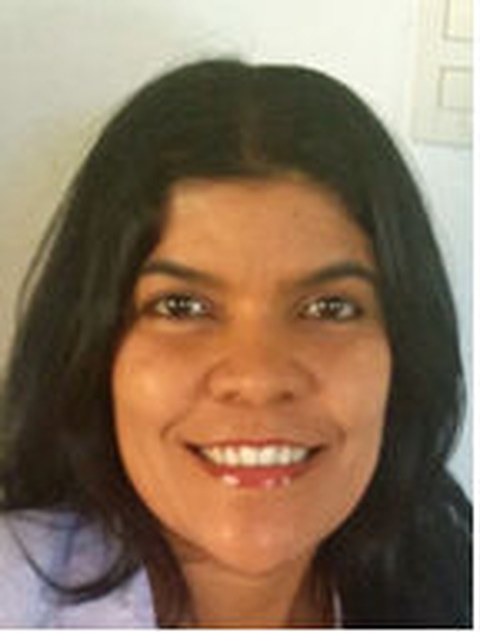
Ms Paola Andrea Vasquez Chaux
Country of origin: Colombia
Workfield: University/NGO
Position while attending the course: Adjunct Researcher and Professor at Universidad Autonoma de OccidenteDepartamento Ciencias Ambientales,Cali; NGO Founder and Director
Academic background: Rural Studies (Ph.D.)
Responsibilities:
► Coordinator of the cleaner production research line in the integrated water research group of the Cinara Institute;
► Lead and support CP projects funded by environmental authorities and other donors;
► Founder anddirector of"Gender & sustainable development".
Mr Alexander Vivar Perez

Mr Alexander Vivar Perez
Country of origin: Cuba
Workfield: Environmental Research
Position while attending the course: Research Assistant at Food Industry Research Institute (IIIA), La Habana
Academic background: Food Science (B.Sc.)
Responsibilities:
► Research in the branch of treatment of clean waters and waste watercoming from the food processing industry ;
► Propose projects withecological profile and resource management in food production.
Profile:
Alexander Vivar Perez is researching on optimization and efficient management of the resources used by the food processing industry, mainly water and energy. He occupies a position of research in Department of Industrial Waters and Biotechnology where projects with environmental profile are developed. The department belongs to the Food Industry Research Institute (IIIA) which is directly related to the Ministry of Food Industry (MINAL) in Cuba.
Alexander was selected to participate actively in the Project "Strengthening the Cuban food production and aquaculture sector by optimizing and recovering resources" Europe Aid / 129-780 / L / ACT / CU (DCI -FOOD). Thanks to the knowledge and experience obtained from the project he made an oral presentation in section of food security and environment belonging to the XIII International Conference on Food Science and Technology and the VI Latin American and Caribbean Congress of Students of Science and Technology of Food and Gastronomy in Havana.
The UNEP/UNESCO/BMUB program is a great opportunity to deepen and increase knowledge about Resource Efficiency and Cleaner Production, and Waste Management. The relationship of the subject with the economy, society and the environment are fundamental pillars in the sustainable development, as well as to improve his skills for decision making.
Ms Xin Zhang

Ms Xin Zhang
Country of origin: China
Workfield: Environmental Protection
Position while attending the course: Investigator at Ministry of Environmental Protection of the People's Republic of China, Beijing
Academic background: Public Finance (B.Sc.)
Responsibilities:
► Applying for key national projects and programs on environmentalprotection
► Focal point for work related to the development of Western China
► Rise of the Central China, rejuvenation of the old industrial base,and poverty relief.
Profile:
Xin Zhang is working as an investigator in the Department of Planning and Finance, Ministry of Environmental Protection, PRC. The department organizes the development of national programs and plans on environmental protection, participates in the formulation of the outline of national sustainable development, and organizes the formulation of the Report on the State of the Environment in China and Environmental Statistics Annals. According to her background, the UNEP/UNESCO/BMUB course program is a good opportunity for Xin to expand her horizone on sustainable resource use and circular economy, deepen her insight on clean production and waste management, and improvement of her skills on cooperating with relevant departments during program implementation and supervision.
(11 October 2017 - 3 November 2017 )
Motivation
Water and soils are limited and endangered resources. It is estimated that at least a quarter of the usable earth surface is affected by strong degradation to an extent which is substantially reducing the potential production of biomass for food, feeding as well as for resources for materials and bioenergy. In the context of an ever-growing world population this is a serious threat. While the world population in the past four decades grew from 3 to over 7.4 billion people, the agricultural area increased by only 8%, mainly through the transformation of forest into arable land. Land consumption through urbanization is further reducing the fertile cultivation area. According to climate projections for the coming decades, rainfall patterns and temperature distributions will also change significantly.
Objectives
The participants in this short course will deal intensively with the connections between land use and nutrient cycles in the context of water catchment areas as well as at a global level. They will be enabled to develop concepts for soil and water protection as an integral part of sustainable land management.
In this course, basic soil functions will be discussed initially. Besides the basic understanding of interactions between soil, water and nutrients, material flows are considered at the landscape level and at a global scale and illustrated by means of a practical case study. Thereby, the influence of energy generation and integrated waste management is elucidated. Integrated water resource management and climate strategies in land management are also discussed on the basis of case studies.
Throughout the whole course, a central role is assigned to the dialogue between scientists, political decision-makers and land managers; the aim is to stimulate this dialogue and to encourage the participants to continue and to search for communication between sectors also beyond the duration of the course.
Represented countries of origin in the course:
| Armenia | Cambodia | China | Costa Rica | Egypt | Georgia |
| India | Jamaica | Kazakhstan | Kenya (x2) | Mongolia | Myanmar |
| Nepal | Nigeria (x2) | Peru | Philippines | Rwanda | Sudan |
| Tanzania |
Ms Omnia Ahmed

Ms Omnia Ahmed
Country of origin: Sudan
Workfield: Development
Position while attending the course: Project Assistant UNDP, Darfur Office
Academic background: M.Sc. Environmental Studies
Responsibilities:
► For the Project “Strengthening Land Management for Peaceful
Co-Existence in Darfur which intends to address the issue of land in
Darfur, which constitutes a considerable challenge to the Darfur peace
initiatives and paves the way for sustainable development
Profile:
Omnia Ahmed is working as project Assistant in a project aiming to strengthen Land management for peaceful co-existence in Darfur; the project is implemented by the United Nation Development Program in Sudan. She is involved in the support of inclusive research on customary and modern land title system, the collection of land data, the support of implementing partners and the conduction of locality based consultation meetings to reflect their recommendations.
Omnia believes that the UNEP/UNESCO/BMUB short course on soil and land resources for sustainable development has an enormous amount of knowledge, experiences and opportunities for global networking. Therefore, she did not hesitate to apply for the course because she was sure that it will lead to innovative solutions for the ongoing and future challenges.
Since 2014, Omnia has been actively engaged in environmental conservation, awareness and development activities through her work as Program Officer in Almassar Charity organization for environmental conservation, as Coordinator for the international American network WECAN “ Women’s Earth and Climate Action Network”, and as Co-coordinator for the” Environment Day” events which aim to raise the community awareness on environmental issues.
Mr Ibrahim Maikore Ali
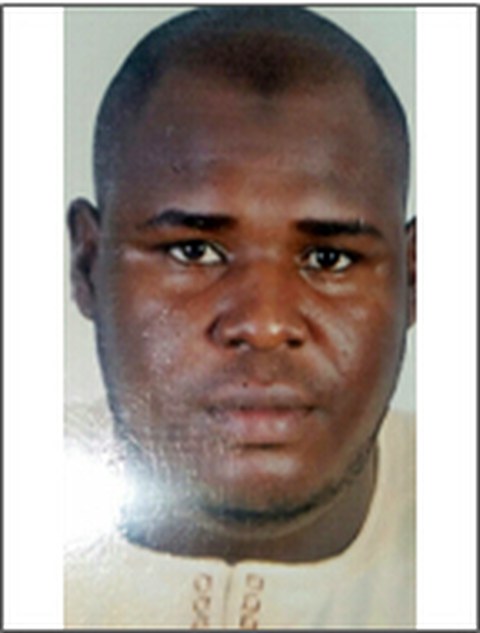
Mr Ibrahim Maikore Ali
Country of origin: Nigeria
Workfield: Fed./nat. administration
Position while attending the course: Forest Officer at Federal Ministry of Environment Abuja
Academic background: B.Sc. in Botany
Responsibilities:
► Strengthing partnership and cooperating with relevant organisations including
research and working hands in hands with UNCCD;
► monitoring and evaluation, land use survey and mapping, land use planning, rangeland management, rural water supply and promotion of arid agricultural practices.
Mr Olalekan Anthony Fatoki

Mr Olalekan Anthony Fatoki
Country of origin: Nigeria
Workfield: Fed./nat. administration
Position while attending the course: Socioeconomic Researcher at Federal Ministry of Environment, Forestry Research Institute of Nigeria, Ibadan
Academic background: M.Sc. Agricultural Economics and Farm Management
Responsibilities:
► Research, extension and community services;
► Conduct socioeconomic analysis of research findings;
► Organising outreach activities to schools
and communities;
► Provide forestry extension services, environmental awareness, advocacy campaigns through media to rural communities
Mr Kishor Aryal
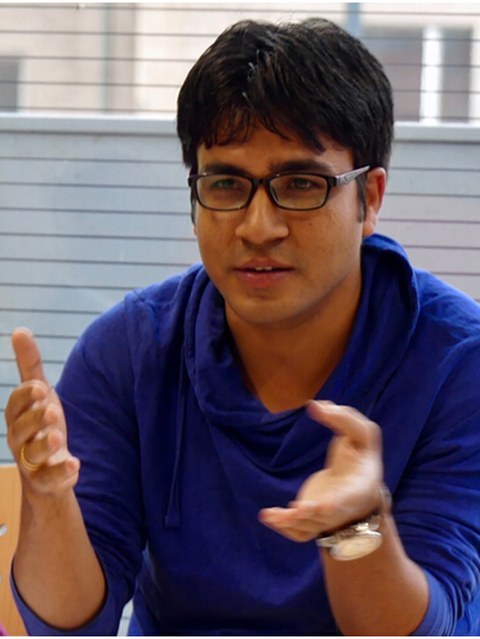
Mr Kishor Aryal
Country of origin: Nepal
Workfield: Forest and Soil Conservation
Position while attending the course: Under-secretary under Ministry of Forests and Soil Conservation
Academic background: M.Sc. Forest and Nature Conservation; MA in Rural Development
Responsibilities:
► Planning and execution of soil and water conservation training for officers and technicians.
Profile:
Kishor Aryal has been working for natural resource management since 2009. Now, he is working as an under-secretary at the Ministry of Forests and Soil Conservation, Nepal. His major responsibilities are planning and implementation of conservation activities such as, addressing slope failure, soil erosion control, water-induced disaster management, and water source protection. Besides, Aryal also works as a guest lecturer in Kathmandu Forestry College in Nepal.
Aryal believes in integrated management of watershed resources at the broader river basin level for sustainable natural resource management and human welfare. Soil and Land resources are the basics for sustaining life of the Earth. Aryal perceives the UNEP/UNESCO/BMUB course as a nice opportunity to get insights on understanding the role of soil and land resources for sustainable development.
Mr Ahmed Abd El- Aziz Awad
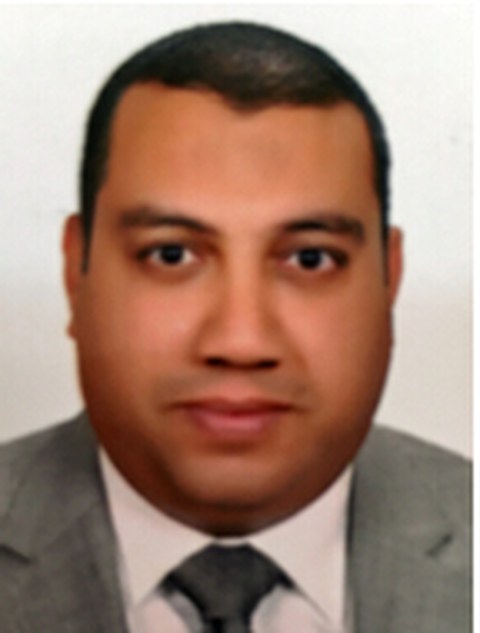
Mr Ahmed Abd El- Aziz Awad
Country of origin: Egypt
Workfield: University
Position while attending the course: Assistant professor at Aswan University, Faculty of Agriculture Department of Agricultural Natural Resources
Academic background: Agricultural Sciences (Ph.D.)
Responsibilities:
► Teaching courses related to soil, plant and water resources
management and related research.
Mr Edwin Antonio Esquivel Segura
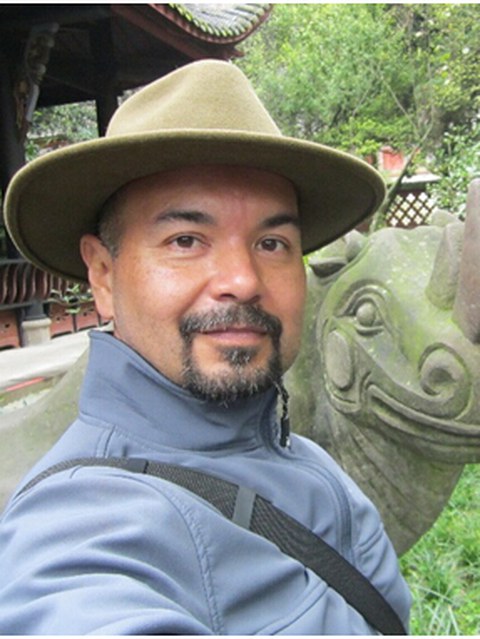
Mr Edwin Antonio Esquivel Segura
Country of origin: Costa Rica
Workfield: Forestry education
Position while attending the course: Professor at Instituto Tecnológico de Costa Rica, Cartago
Academic background: Forest Science (Ph.D.)
Responsibilities:
►Planning and execution of courses in forestry engineering related to soils;
► Research in projects related to sustainability and soil;
► Training of small forest producers in soils;
► Representative of the institution to the
National Commission for Forestry Sustainability.
Profile:
Edwin Antonio Esquivel Segura is working at the TEC (Instituto Tecnológico de Costa Rica, in Spanish) in the Forestry School as a professor in several courses with focus on forestry soils. His research focuses on dendroenergy, improvement of the productivity of forestry plantations by improving the soil conditions, and ecology restauration. Edwin applied for UNEP/UNESCO/BMUB course because he is very interested in the sustainability of soils when used to produce wood or energy. He is furthermore working a part-time at Universidad Nacional de Educación a Distancia. Edwin's active researches at present comprise the Use of cover crops to improve the growth of Teak, the use of bamboo for energy in an abandoned plantation of Guadua, and ecology restauration in a National Park Irazu Volcano.
Ms Claudia Andrea Tapia Arenas

Ms Claudia Andrea Tapia Arenas
Country of origin: Costa Rica
Workfield: Fed./nat. NGO
Position while attending the course: Professor and Researcher at Instituto Tecnológico de Costa Rica Cartago
Academic background: Territorial Planning and Management (MSc.)
Responsibilities:
► Research in the project "Pilot Plan for Ecological Rehabilitation of the
Prussian Sector of the Irazú Volcano National Park", assessing the effects
of changes in the hydrological cycle;
► Determining best techniques
for ecol. restoration based on site characteristics;
► Evaluating effect of the changes in the hydrological cycle;
► Lecturing in a GIS course.
Mr Byambabayar Ganbold
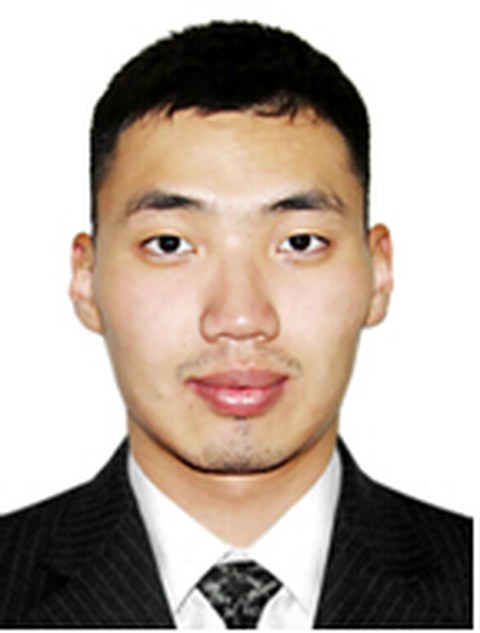
Mr Byambabayar Ganbold
Country of origin: Mongolia
Workfield: Environmental education, soil geogrraphy and general concepts of soil
Position while attending the course: Lecturer at National University of Mongolia, Department of Geography School of Arts and Sciences, Ulaanbaatar
Academic background: M.Sc. Geography
Responsibilities:
► Survey on soil biological remediation.
Profile:
Byambabayar Ganbold is working as a lecturer and project assistant at the Department of Geography, Branch of Natural Sciences, School of Sciences and Arts, National University of Mongolia. After his bachelor degree in Geography in India he graduated with a M.Sc degree in Soil Geography in Mongolia. His thesis work was about estimating soil loss, soil degradation caused by off-road vehicles with respect to the soil characteristics and soil textures. Since his graduation, Byambabayar has been involved in the coordination of activities on geography, mostly soil protection and remediation management. He also works on issues related to the soil loss, soil bio-remediation, protection and soil pollution especially heavy metals in the soil, taking action on treating or removing such heavy elements in the soil and is also responsible for doing any soil related research on the specific area which is polluted, contaminated as well as degraded at different levels in terms of processing new idea to save the soil healthy.
In this context, the Byambabayar rates the UNEP/UNESCO/BMUB programm as the best opportunity for him to deepen his knowledge on modern nature conservation approaches, governance and conservation economics as well as to improve his skills for facilitating complex discussions. In the last years, Byambabayar has been actively engaged in the Mongolia and Japan joint research on mapping of soil degraded area by vehicles in Mongolia.
Mr Chandath Him
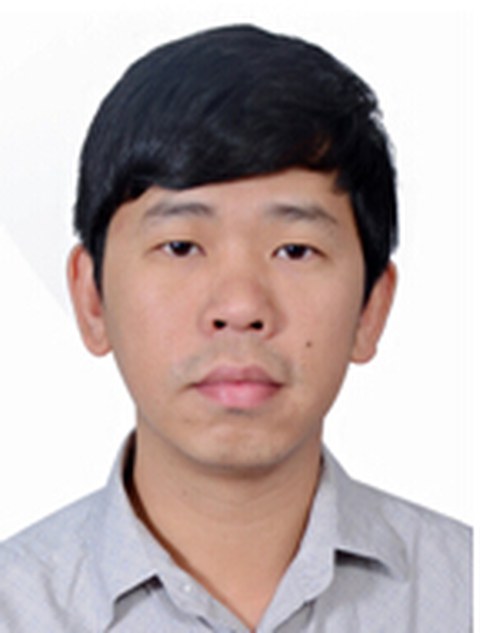
Mr Chandath Him
Country of origin: Cambodia
Workfield: Government Officer
Position while attending the course: Deputy Director, Dept. of Water Quality Management at Ministry of Environment in Cambodia, Gen. Directorate of Envtl. Protection, Phnom Penh
Academic background: Environment (M.Sc.)
Responsibilities:
► Preparing public water quality management plans;
► managing and inspecting environmental pollution sources;
► providing technical advise to officers;
► preparing policy documents, management frameworks and action plans for water quality management.
Profile:
Chandath Him is deputy director of the department of water quality management at the Ministry of Environment in Cambodia. After graduating with a Master Degree in Environment. Regarding my working experience, he gained more than 7 years of working experience in the field of environmental pollution control and environmental and social impact assessment. Chandath felt very pleased to be awarded with a fellowship for the UNEP/UNESCO/BMUB course on Soil and Land Resources for Sustainable Development. He believes that the opportunity to attend this program will benefit to both his community and his long-term career goals because this program will provide a great chance to bridge his knowledge gap on soil related to water quality management and to buildup the professional network with other international participants.
Mr Paul Mathaiya Kahiga
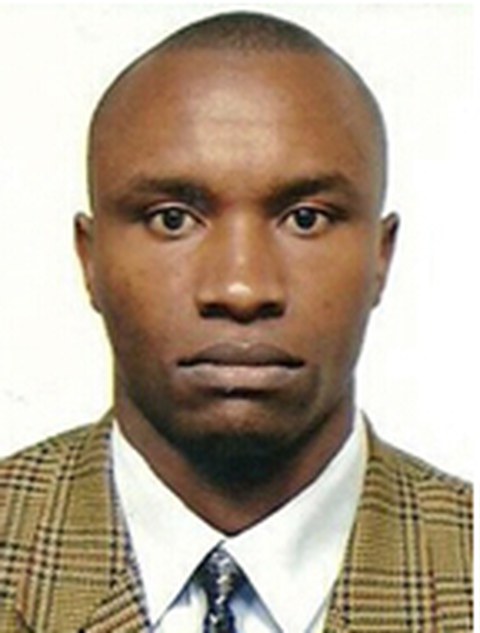
Mr Paul Mathaiya Kahiga
Country of origin: Kenya
Workfield: Agricultural and Environmental Engineering (soil, water and Environment)
Position while attending the course: Senior Technologist at Jomo Kenyatta University of Agriculture and Technology (JKUAT) Soil, Water and Environmental Engineering Department (SWEED), Nairobi
Academic background: M.Sc. in Environmental Engineering and Management
Responsibilities:
► Soil mechanics laboratory in the soil, water and environmental engineering department (SWEED).
Profile:
Paul Mathaiya Kahiga is a senior technologist in charge of the soil mechanics/physics laboratory in the Soil, Water and Environmental Engineering Department and lecturer of Irrigation and Drainage Systems Design and Management at the Jomo Kenyatta University of Agriculture and Technology. He furthermore works as an Environmental Impact Assessment and Audit expert and a registered Graduate Engineer with the Engineer’s Board of Kenya. Paul's main areas of research include sustainable land management in agricultural ecosystems and restoration of degraded lands. It is against this background that this fellowship programme is very important to enhance his skills in soil and land resource management from the global perspective. Paul has worked in the Upper Tana Catchment and developed a decision support (MATSIM) tool for selecting sustainable land management technologies within the catchment and is furthermore formulating an erosion susceptibility and risk assessment study in the Upper Tana Catchment.
Ms Teresia Wangeci Kariuki
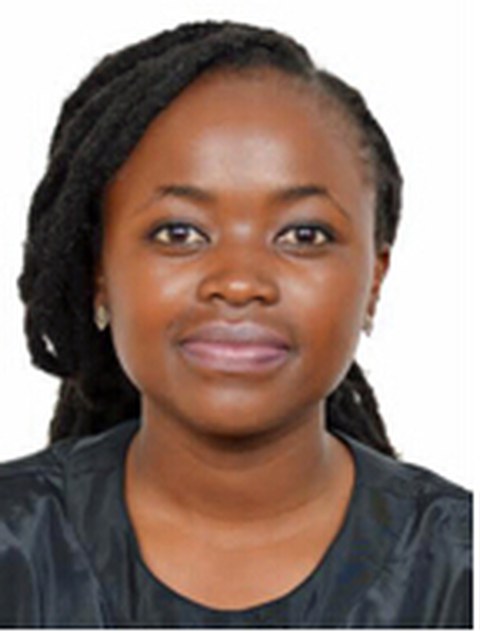
Ms Teresia Wangeci Kariuki
Country of origin: Kenya
Workfield: Reg. company
Position while attending the course: Agricultural Systems Auditor at Africert Limited Nairobi
Academic background: B.Sc. in Environmental Science
Responsibilities:
► Assist the small holder and estates in achieving certification to ensure competitiveness in the world market as well as sustainable agriculture and improved social and economic welfare for smallholder farmers and workers.
Profile:
Teresia Wangeci Kariuki is working as an agricultural systems auditor/specialist with an agribusiness company called Africert Limited in Nairobi, Kenya. She is tasked with assisting smallholders and large estates to achieve certification to ensure they are competitive in the world market and also ensuring sustainable agriculture as well as improved social and economic welfare for smallholder farmers and workers. Teresia has worked with smallholders from various African countries namely Kenya, Tanzania, Malawi, Burundi, Rwanda, Zambia and Zimbabwe in certification against the sustainable agriculture standards (SAS).
The UNEP/UNESCO/BMUB course, soil and land resources for sustainable development in her oppinion offers the opportunity to broaden and develop her skills as an environmental scientist. She is an advocate for knowledge transfer and use of the bottoms up approach in achieving sustainability. She believes this course will not only equip her with technical knowledge but also means of passing it down.
Ms Maka Manjavidze

Ms Maka Manjavidze
Country of origin: Georgia
Workfield: Environmental Policy
Position while attending the course: Chief Specialist of Land Resources Protection and Mineral Resources Division of the Ministry of Environment and Natural Resources Protection of Georgia
Academic background: M.Sc. in Environmental Science and Policy
Responsibilities:
►Participation in the process of land protection policies;
► Preparation legal documentations;
► International project proposal preparation in the field of land resources management.
Profile:
Maka Manjavidze is working at the Ministry of Environment and Natural Resources Protection of Georgia as a chief specialist in the Land Resources Protection and Mineral Resources Division. One of the most important goals of the Ministry is to support sustainable development of the country in the field of environmental protection.
Maka's duties at the Ministry are participation in the process of elaboration land protection policies of the country, legal documentations and international project proposal preparation in the field of land resources management and protection. As her former job field was Geo Information Systems (GIS), in the Ministry she is also dealing with processing and mapping data regarding land contamination. Maka is involved in the process of monitoring and implementation of the United Nations Convention to Combat Desertification and is a national consultant of UNCCD LDN target Setting Program.
Land degradation is an important issue in Georgia. Overgrazing, loss of forest cover and unplanned urban sprawl are major causes of land degradation. Also climate change, in conjunction with the man-induced factors, may accelerate the degradation of land resources. Solution of this complicated situation is to achieve the best possible land-use through optimal sustainable management of land resources. Maka hopes to obtain knowledge in these these issues and skills from the UNEP/UNESCO/BMUB course.
Ms Pamella McKenzie

Ms Pamella McKenzie
Country of origin: Jamaica
Workfield: Agricultural Land Management
Position while attending the course: Regional Land Capability Planner at Agricultural Land Management Division
Kingston
Academic background: M.Sc. Plant Production and Protection
Responsibilities:
► Land use planning - preparing land capability studies for clients;
► Evaluation of soil fertility for making recommendations to sustain soil health and crop production;
► protection of agricultural lands from change of use or degradation;
► subdivision inspections.
Profile:
Pamella McKenzie is currently working as a Regional Land Capability Planner, at the Agricultural Land Management Division within the Ministry of Industry Commerce Agriculture and Fisheries(MICAF). Responsibilities of the job include among others the inspection of subdivision/change of land use requests and of quarry sites to determine if an application for license can be recommended. Further duties are sample collection of soil water and plant tissues, report preparation, training of farmers and the participation in joint research activities.
Pamella applied for the CIPSEM course because the training opportunity in Soil and Land Resources for Sustainable Development is ideal for her department as it is endeavoring to ensure the limited land resources on Jamaica is managed in the most sustainable way. Also this training opportunity would enhance her practical experience in her field of work. Pamella expected from the course to be introduced to strategies that encourage sustainable development, to practical solutions addressing the issues surrounding land use, and to be able to develop regional partnerships with other participants with similar challenges as it relates to land use, with the objective of working together to develop solutions. Currently she is working in collaboration with Inter-American Institute for Cooperation on agriculture, in a project using organic matter to reclaim mined out lands (bauxite ore bodies) in Jamaica.
Mr Davit Mejlumyan
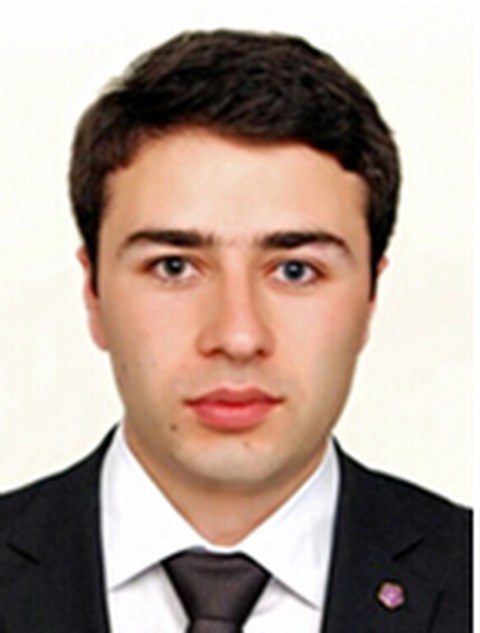
Mr Davit Mejlumyan
Country of origin: Armenia
Workfield: Ministry of Agriculture
Position while attending the course: Head of Melioration Division of Land Use and Melioration Department, Ministry of Agriculture of the Republic of Armenia
Academic background: Agriculture (Ph.D.)
Responsibilities:
► Raising efficiency (improvement) of using RA agricultural lands and melioration;
► Development of activities for irrigation projects, as well as activities for preventing and eliminating harmful effects of river waters and monitoring of such projects;
► Working out and submission of proposals for desalination and reclaiming of Ararat valley secondary saline soils and alkalized plots.
Profile:
Davit Mejlumyan is working as Head of the Melioration Division of Land Use and Melioration Department at the Ministry of Agriculture of the Republic of Armenia. Before he was working in the Ministry of Nature Protection of the Republic of Armenia as a leading specialist of Water Cadastre and Monitoring Division of Water Resources Management Agency and as a first category specialist of Hazardous Substances and Waste Policy Division.
Davit's main responsibilities are among others raising efficiency of using RA agricultural lands and melioration, the development of activities for irrigation projects, as well as activities for preventing and eliminating harmful effects of the river waters and monitoring of such projects, and the elaboration and submission of proposals for desalination and reclamation of Ararat valley secondary saline soils and alkalized plots.
Davit considers the UNEP/UNESCO/BMUB course to help him not only in the improvement of his professional skills but also as a contribution in his further scientific works. He also appreciates the exchange experience with new acquaintances and contacts, which will allow him to create new connections with international experts and researchers from different countries.
In his earlier career Davit has been awarded a PhD in 2016 “Methods of Land Management Organization Improvement of Perennial Plantations in the Conditions of Pre-Mountain Zone of Armenia”. Furthermore he was successfully engaged in coordination of field works of bioengineering measures and facilitation of participatory discussions on environmental topics conducted by “ESAC” NGO within the scope of the GIZ project “Integrated erosion control in mountainous regions of the South Caucasus.
Ms Esperance Mujawamariya
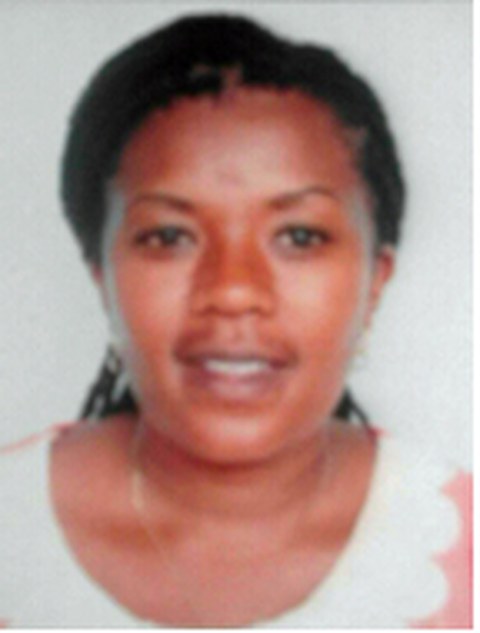
Ms Esperance Mujawamariya
Country of origin: Rwanda
Workfield: Fed./nat. administration
Position while attending the course: Land Husbandry Technician at Rwanda Agriculture Board Kigali
Academic background: Agroforestry (B.Sc.)
Responsibilities:
► Assisting farmers in making radical terracing and better soil management practices to maintain fertility and control soil erosion.
Mr Raya Joseph Amara Nundu
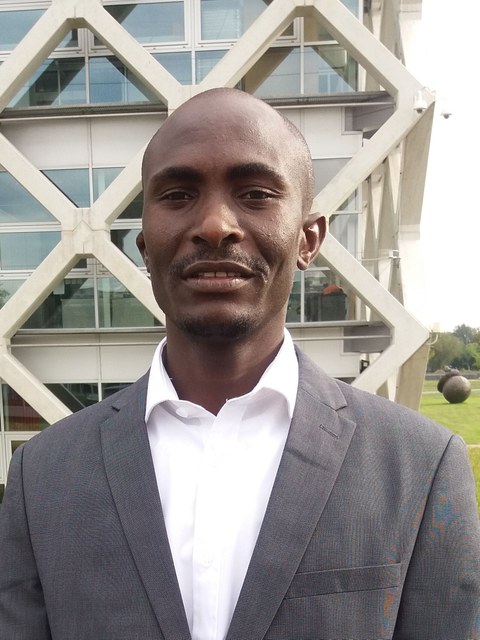
Mr Raya Joseph Amara Nundu
Country of origin: Tanzania
Workfield: Agriculture
Position while attending the course: Agricultural Officer at Meatu District Council Mwanhuzi, Meatu-Simiyu
Academic background: Plant Science-Natural Resource Management (M.Sc.)
Responsibilities:
► Managing all agricultural activities and soil and water catchment areas' conservation under Lake Victoria Environmental Management Project
(LVEMP II) in Meatu District Council;
► Training extension officers on good
agricultural practices that are friendly to the environment (soil & water sources).
Profile:
Raya Joseph Amara Nundu is working as Agricultural Officer in Meatu District Council under the Department of Agriculture, Irrigation and Cooperatives. He is training agricultural Field Officers and farmers on good agricultural practices (GAP) through on-farm trainings and famer field schools (FFS). He also provides technical advice on soil and land resources management and horticulture to the related projects conducted within the district. Following his longtime interest in agricultural research, he is currently in a transition to join the agricultural research institute.
Raya applied for UNEP/UNESCO/BMUB course programme due to his curiosity to improve his skills and knowledge on soil and land resources management for sustainable development and based on his conviction of agriculture depending on soil and land resources in all ways as even soilless culture and hydroponics still require land for the construction of greenhouses/glasshouses.
In earlier years, Raya has been awarded a MSc Fellowship by the Netherlands Fellowship Programme (NFP)/Nuffic for 2014-16 academic years in Wageningen University and Research, the Netherlands. He also fully participated in the implementation of Lake Victoria Environmental Management Project phase two (LVEMP II) as a Meatu district horticulturist.
Ms Monica Rivera Neciosup

Ms Monica Rivera Neciosup
Country of origin: Peru
Workfield: Soil , Land and Biodiversity Conservation
Position while attending the course: Coordinator of the Assessment Area of Environmental Management Instruments at Ministry of Agriculture and Irrigation
Academic background: Environmental Pollution (B.Sc.)
Responsibilities:
► Coordinator of the evaluation area of environmental management
instruments of other productive sectors.
Profile:
Monica Rivera Neciosup works as Coordinator of the Assessment Area of Environmental Management Instruments of the different Productive Sectors of the Ministry of Agriculture and Irrigation.
Her main functions are: Protect the soil and land resource, as well as the flora and fauna in front of the development of the different projects in areas related to mining, energy, industrial production, etc. using national and international technical and legal tools. Monica also trains local, regional and national government authorities and farmers through field school methodologies within the framework and monitors the environmental commitments of the Agricultural Projects.
She has worked as an analyst of technical files for the registration of chemical products for agricultural use, participating in the program "Reduction of the Degradation of Agricultural Soils" on the Use and Management of Chemical Pesticides for Agricultural Use and their Environmental Risks.
In Monica’s opinion Peru is going through a great problem of soil degradation, which is why it has been carrying out different tasks such as territorial zoning, soil, land and biodiversity recovery programs, for its conservation and sustainable management, as well as constant training for farmers for a better use and management of the soil resource.
In this context, Monica believes that the UNEP/UNESCO/BMUB short course on soil and land resources for sustainable development was a great opportunity to increase her knowledge and create networks of experts, with the aim of improving the decision making for the benefit of her country and future personal challenges.
Ms Rochelle Joie Saracanlao
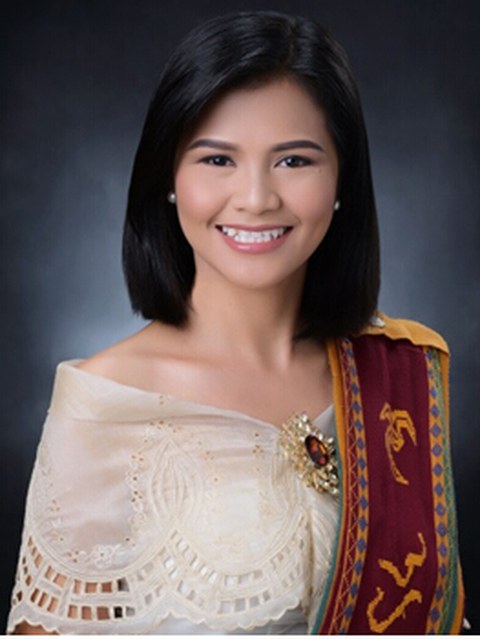
Ms Rochelle Joie Saracanlao
Country of origin: Philippines
Workfield: Soil Analysis
Position while attending the course: Soil Chemist at Division of Soil Science, Agricultural Systems Institute College of Agriculture and Food Science, Los Baños, Laguna
Academic background: Soil Science (M.Sc.)
Responsibilities:
► Preparing solutions for soil test kits for qualitative assessment of soils
in terms of N, P, K and pH levels;
► evaluating results of soil analysis
(N, P, K, trace element, etc) before formal release to clients;
► Analyzing soils and plant tissues.
Profile:
Rochelle Joie Saracanlao is currently working as a soil chemist at the Division of Soil Science, the University of the Philippines Los Baños and will soon be appointed as an Assistant Professor at the same division. Her main task is to teach soil chemistry courses to both undergraduate and graduate students. Rochelle applied for the UNEP/UNESCO/BMUB short course on soil and land resources for sustainable development to deliver improved lectures encompassing soils from a local and global perspective. In addition, she appreciates the opportunity to learn from the discussions and from her fellows what were the legal, institutional and civilian measures done to address issues in soil and land resources in their country. With such linkages, Rochelle is hopeful that she can also do research with her fellow participants someday and through collective efforts the goal of ensuring food in every table, clean and safe water and mitigating climate change is becoming more of a possibility.
In former years, Rochelle was awarded as one of the Academic Excellence Awardees during the commencement exercises for her Master’s degree. Furthermore she received the Best Oral Presenter Award during the International Conference on Sustainable Soil Management held at Bintulu, Sarawak, Malaysia in April 2017.
Ms Richa Srivastava

Ms Richa Srivastava
Country of origin: India
Workfield: Capacity building and outreach in the field of environment, climate change and agriculture
Position while attending the course: Program Coordinator at Gene Campaign
New Delhi
Academic background: Environmental Science (M.Sc.)
Responsibilities:
► Coordinating projects on agro-biodiversity management;
► planning and implementing training programmes for farming communities on diversification of agriculture and livelihoods activities;
► climate smart agriculture;
► facilitating dialogue among Women Self Help Groups.
Profile:
Richa Srivastava works as programme coordinator with the Delhi-based NGO—Gene Campaign. Her primary responsibilities include the coordination of projects on natural resources and agro-biodiversity management in the Indian states of Uttarakhand (a central Himalayan State) and Jharkhand (semi-arid tribal dominated region in eastern part) and the implementation of training programmes for farmers with focus on climate resilient agriculture, crop diversification and alternate livelihood activities. Gene Campaign’s work primarily focuses on improving household food and nutrition security, agro-biodiversity conservation, community seed banks as well as capacity building and policy advocacy.
For Richa, the UNEP/UNESCO/BMUB short course at TU Dresden was a great opportunity to strengthen her understanding about multiple aspects of soil/land management, governance issues as well as to improve her skills to facilitate complex discussions on the theme. It also provided her with the opportunity to learn from experiences and perspectives across the globe: from the peer group, and also the strong faculty at TU Dresden and visiting institutions.
Previously, Richa was awarded the prestigious Netherlands Master Fellowship Program (NUFFIC) at Wageningen University in The Netherlands. She has co-authored a report on “Impact of Climate Change on Agriculture & Food Security” (2012) published by the Indian Council for Research on International Economic Relations. She furthermore contributed to the book on “Coping with Climate Change” (2014) published with support by the Heinrich Böll Stiftung and managed the quarterly magazine "Gene News".
Ms Swe Swe Tun
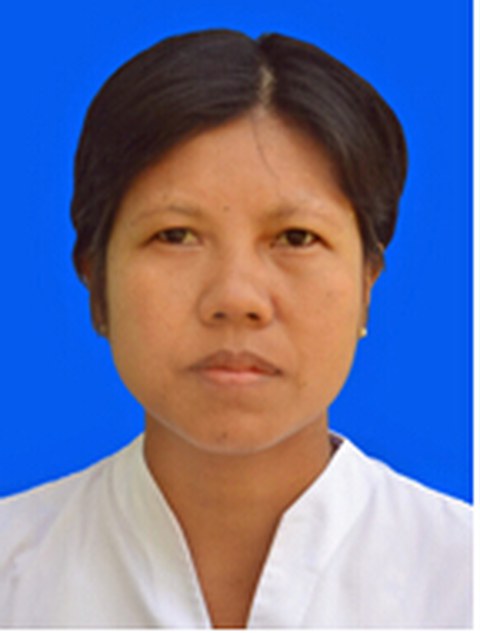
Ms Swe Swe Tun
Country of origin: Myanmar
Workfield: Soil and Water Conservation
Position while attending the course: Research Officer at Forest Research Institute Yezin, Nay Pyi Taw
Academic background: Forest Soil (M.Sc.)
Responsibilities:
►Soil conservation research in abandoned shifting cultivations in watershed areas in Myanmar;
► Land use and land cover classification, slope classification;
► Research in assessment of soil erosion, soil sample collection and soil properties and on soil and water quality assessments in mining areas;
► Nutritional analysis on plant and soil.
Profile:
Swe Swe Tun is a researcher concerned with soil conservation in abandoned shifting cultivations in Bago Yoma (east and west) watershed areas in Myanmar. Land use and land cover classification, slope classification, assessment of soil erosion, soil sample collection and soil properties analysis are conducted in these areas. She has analyzed physical and chemical properties of soil for the establishment of special teak plantations, dry zone plantations and private owned plantations to recommend land reclamation and fertilizer application. Classifications of soils in various forest types are also conducted. Compost making and EM fertilizer (effective micro organism) making with minor forest products (especially bat guano and saw dust) have been conducted and applied in different kinds of plantations. Swe Swe is also experienced in fertilizer application research in woody oil plantations to increase soil fertility for long term productivity of oil plantations. Furthermore, she participated in a REDD plus project in soil carbon measurements in the Bago Yoma region where she analyzed plant water potential, plant osmotic potential and soil water potential of drought resistant tree species in dry zone plantations for site species selection for dry zone area.
Mr Wei Yanchang
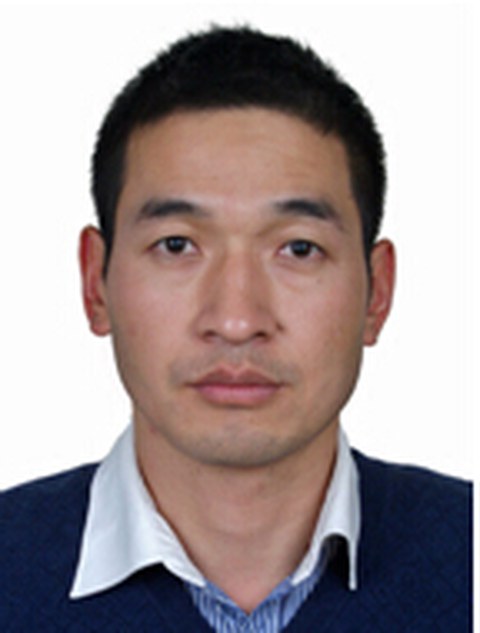
Mr Wei Yanchang
Country of origin: China
Workfield: Fed./nat. administration
Position while attending the course: Deputy Director at Ministry of Environmental Protection Xicheng District, Beijing
Academic background: Ecology (Ph.D.)
Responsibilities:
► Soil environmental management.
Profile:
Wei Yanchang is mainly responsible for formulating soil environmental management policies, planning, laws, administrative regulations, departmental rules, regulations, standards and norms; he undertakes the work of soil pollution prevention and control; carries out calculation of environmental capacity and assessment of soil environmental carrying capacity; shoulders the discharge permit, the total amount control, emissions trading of soil pollutants.
At present, Yanchang mainly implements the tasks and measures to put forward the Action Plan for Soil Pollution Prevention and Control in China. Yanchang's intention for participating in the UNEP/UNESCO/BMUB course programm was to learn about the legal system, policy measures and standards in soil pollution prevention and control in Germany, the European Union or other countries represented in the course.
Mr Valeyev Adilet Galikanovich
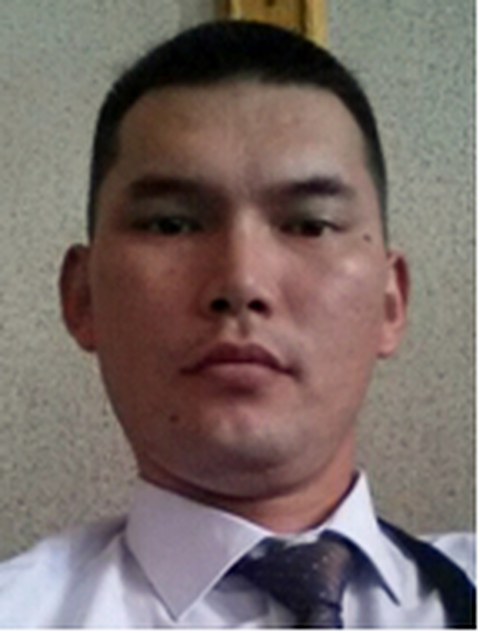
Mr Valeyev Adilet Galikanovich
Country of origin: Kazakhstan
Workfield: Fed./nat. administration
Position while attending the course: PhD student in the second year at the Kazakh National Technical
Research University “Satpayev” in Almaty, Kazakhstan.
Academic background: Ecology (M.Sc.)
Responsibilities:
► The major field of study is "Ecology". Working at the Institute of Geography
at the laboratory for geomorphological mapping and GIS. Thesis topic:
"The processes of relief formation of the coastal zone of lake Alakol and
their impact on the natural and economic system of the coast"
(30 August 2017 - 26 September 2017 )
Represented countries of origin in the course:
| Azerbaijan | Bhutan | Bolivia | Brazil (x2) | Cambodia | China |
| Costa Rica |
Colombia |
||||
|
Peru (x2) |
|||||
| Thailand | Ukraine |
Mr Abera Tilahun Abdi
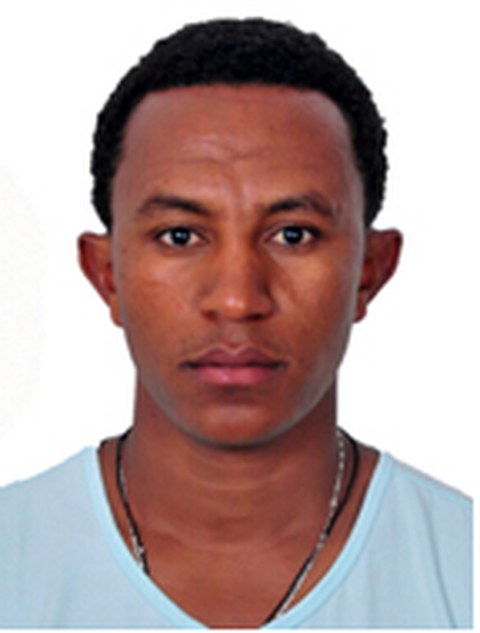
Mr Abera Tilahun Abdi
Country of origin: Ethiopia
Workfield: Fed./nat. administration
Position while attending the course: Lecturer at Hawassa University - Wondo Genet College of Forestry and Natural Resources Shashemene
Academic background: M.Sc. Dryland Forestry
Responsibilities:
► Teaching
► Scientific research
► Community services
Mr Bipeen Acharya
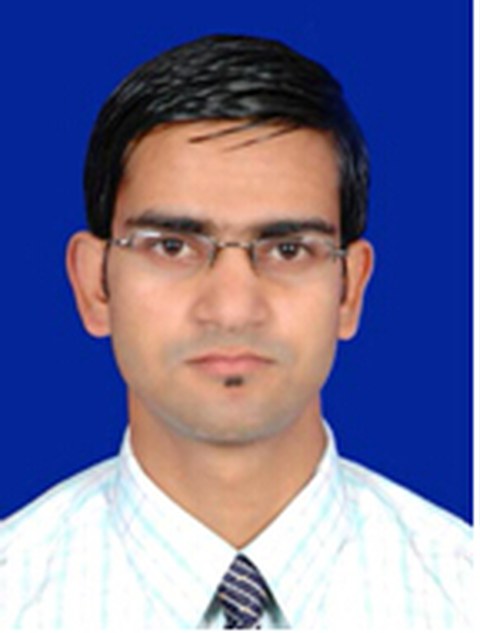
Mr Bipeen Acharya
Country of origin: Nepal
Workfield: Federal Government
Position while attending the course: Under Secretary, Government of Nepal
Academic background: M.Sc. in Environmental Science
Responsibilities:
► Planning and Budget Coordination section of the Ministry of Population and Environment;
► Preparing long term and short term annual budgets;
► Implementing the policies and programmes prepared by the Government
of Nepal.
Profile:
Biodiversity and ecosystem services are the important basis for enhancing food security, improving local livelihoods and maintaining socio-ecological resilience. The Ministry of Environment and Population has envisioned eco-friendly national economic development to conserve the forests’ integrity and ecological services.
Working as an under-secretary for this organization, Bipeen Acharya is actively involved in providing the inputs for the formulation of conservation-friendly policies and laws. He also works for effective implementation of these policies as long term and short term annual budgets and programs in the field level. Bipeen is equally responsible for implementing the Low Carbon Development Strategy to mainstream biodiversity conservation in development planning and implementation.
However, he felt that little knowledge about the range of different natural and social sciences methodologies has always hindered his capacity for the effective evaluation of ecosystem services and biodiversity. His expectations from the UNEP/UNESCO/BMUB course were to share and exchange experience and knowledge with the participants from wide range of disciplines and professional backgrounds to develop his analytical skills and understanding of the multi-faceted aspects of ecosystem assessment and biodiversity conservation. With the course Bipeen found a perfect platform for this.
Ms Amira Elvia Apaza Quevedo
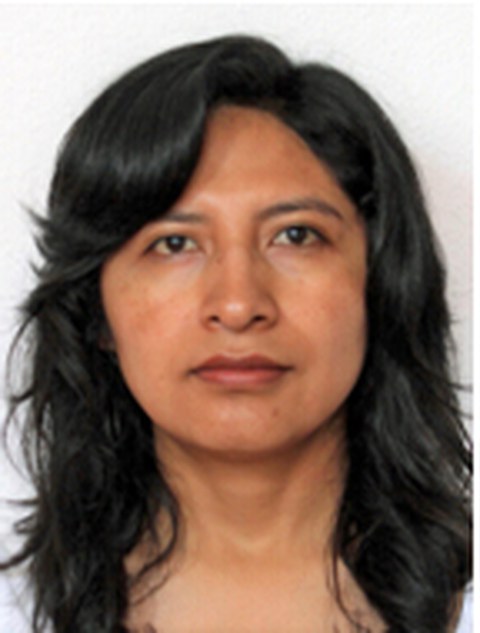
Ms Amira Elvia Apaza Quevedo
Country of origin: Bolivia
Workfield: Regional
Position while attending the course: International Consultant - Senior Biologist at UNDP project
Academic background: Ph.D. Functional Diversity, Population Genetics and Land-use Change
Responsibilities:
► Evaluating impacts of environmental liabilities from the mining and oil sector on biodiversity and ecosystems in protected areas.
Mr Marshall Banamwana
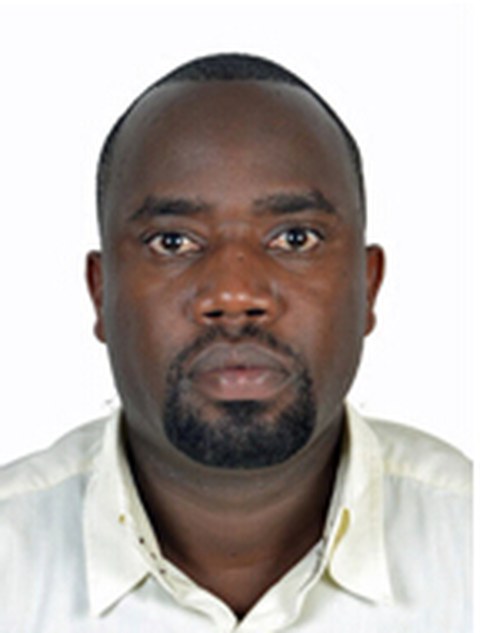
Mr Marshall Banamwana
Country of origin: Rwanda
Workfield: Fed./nat. administration
Position while attending the course: Environmental Protection Specialist at Ministry of Natural Resources (MINIRENA) Kigali
Academic background: M.Sc. Biodiversity Conservation
Responsibilities:
► Coordinating and facilitating the review and updating environment policies and legislations;
► Providing technical advice on matter related to the proper management of environment;
► Ensuring coordination and follow up of strategic actions and initiatives related to sustainable environmental management.
Profile:
Marshall Banamwana is working as Environmental Protection Specialist at the Ministry of Natural Resources. A part working at the Ministry, he is also part time lecturer at the Kitabi College of Conservation and Environment Management (KCCEM). The (KCCEM) is a regional training College, operating under Rwanda Development Board (RDB). The college was established in 2006 with a mandate to build capacity in conservation, tourism and environmental management in Rwanda and the wider Albertine Rift Region. Marshall mainly teaches courses related to Biodiversity Conservation, wildlife management, parks planning and community conservation.
Furthermore he is a technical advisor to various ongoing conservation and environment management projects in his country and has represented Rwanda to various International fora and platforms including the UNFCCC COP22 in Marrakech in 2016 and 16th Regular Session of the African Ministerial Conference on Environment (AMCEN) in June 2017.
Mr Gabriel Carvalho de Avila
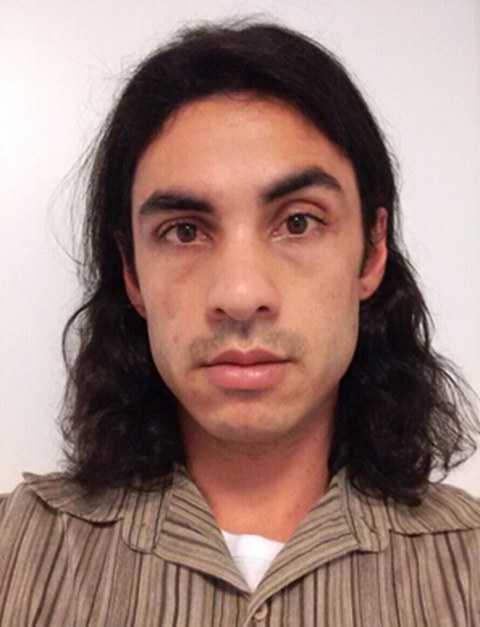
Mr Gabriel Carvalho de Avila
Country of origin: Brazil
Workfield: Protected Areas Management
Position while attending the course: Sectorial Coordinator of Protected Areas at Intistuto Estadual de Florestas - Unidade Regional Alto Jequitinhonham Minas Gerais
Academic background: M.Sc. in Geography
Responsibilities:
►Coordinating nine protected areas since 2010;
►Providing the protected areas teams with the required inputs to reach a reasonable level of management effectiveness;
►Organising training events.
Profile:
Gabriel Carvalho de Avila is since ten years working as Protected Areas Manager in the state of Minas Gerais, Brazil. His function is Environmental Specialist on the State Institution of Forests agency which is responsible for the promotion of the environmental policy of the state. Currently he is involved in a project which aims to attain the integrated management of nineteen protected areas, in a region declared as UNESCO Biosphere Reserve, called Serra do Espinhaco, placed in the largest range of mountains of Brazil, on the board between the two Brazilians hotspots Biomes: Atlantic Rain Forest and Brazilian Savanna. His organization has been working with the team of those protected areas in order to get better level of effectiveness of its management as well as the better involvement of the local rural communities. Gabriel's team is carrying on projects to strengthen the protected areas planning process, the sustainable development of use of non-timber products and the evaluation of the benefits and costs generated by the net of protected areas. For Gabriel the UNEP/UNESCO/BMUB course was a great opportunity to learn about his field of work, within a dynamic system of classes, workshops and practical activities. The deep expertise of the professors of Technische Universitat Dresden as well as the possibility of learning with professionals of many countries was his major motivation to apply to the short course of Biodiversity Conservation and Ecosystem Services.
Ms Thayna Jeremias Mello
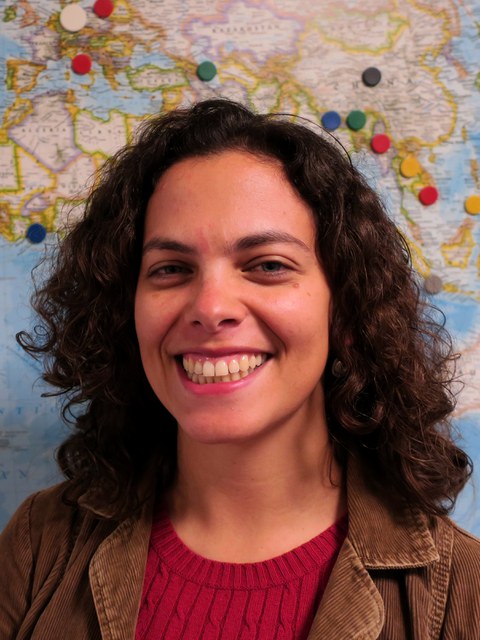
Ms Thayna Jeremias Mello
Country of origin: Brazil
Workfield: Conservation of Biodiversity
Position while attending the course: Research and Monitoring Coordinator at Fernando de Noronha Marine National Park
Academic background: M.Sc. Ecology
Responsibilities:
► Coordinating research, monitoring and management of Fernando de Noronha National Marine Park and environmental protected areas.
Profile:
Thayna Jeremias Mello works as Research and Monitoring coordinator in Fernando de Noronha Marine National Park, a protected area managed by ICMBio, agency linked to the Brazilian Environmental Ministry. She is responsible for applying scientific knowledge to inform decision makers and to identify knowledge gaps to be tackled, establish a priority list of necessary research, and manages the scientific knowledge database. Thayna analyzes and prepares technical reports on potentially impacting projects, conducts analysis of environmental impacts and proposes mitigation measures. She coordinates monitoring plans of fisheries, coral reefs, marine birds and water quality, translating the monitoring data into management tools and regulations. She is also responsible for the elaboration and execution of the Invasive Species Management Program, the Degraded Areas Restoration Plan and for the implementation and monitoring of the local actions of the National Action Plans for Threatened Species.
The -UNEP/UNESCO/BMUB course programme was a great way for her to develop her skills both in science and decision making and to learn useful management tools, which will be readily applied in her work. Besides that, exchanging experiences with people from all over the world and learning about how ecosystem and protected areas management are done in other countries is an invaluable opportunity.
Ms Carolyn Esmenda
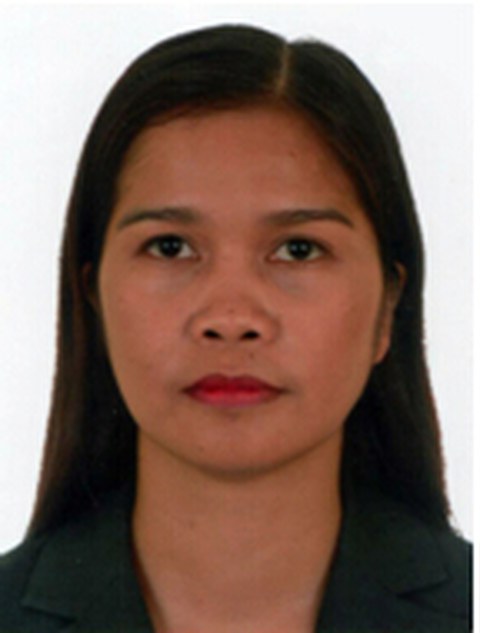
Ms Carolyn Esmenda
Country of origin: Philippines
Workfield: Resource Management
Position while attending the course: Ecosystem Management Specialist, Department of Environment and Natural Resources (DENR)
Academic background: M.A. Environmental Management
Responsibilities:
► Providing technical assistance for the management of the two national parks within the administrative jurisdiction of CENRO-Taytay, the El Nido-Taytay managed resource protected area and Malampay sound protected landscape and seascape;
► Conducting various biodiversity conservation activities.
Profile:
Carolyn Esmenda is currently working as Protected Area Superintendent of Malampaya Sound Protected Landscape and Seascape (MSPLS) located in Taytay, Palawan, Philippines - one of the protected areas under the jurisdiction of Community Environment and Natural Resources Office (CENRO) – Taytay, Palawan. A significant part of her job involves the management of the natural resources within the 200,115 hectare-protected area, the largest protected area in the province, as well as working with the people living inside the park. As part of the management of the park, her organization applies biodiversity monitoring and facilitates the implementation of various programs and projects of the Department for the protected area. The most challenging part of her job is working/engaging the communities within the park in the protection and conservation of the fragile ecosystems. The organization also coordinates with partner agencies and organizations as well as the provincial, regional and national offices for the implementation of various activities related to park management. In her previous assignment, Carolyn extended technical assistance to the protected areas for various resource management and biodiversity conservation endeavors.
Carolyn finds the UNEP/UNESCO/BMUB course a good platform in enhancing her knowledge and skills in resource management particularly capitalizing on ecosystem services.
Ms Arie Fahmiyati
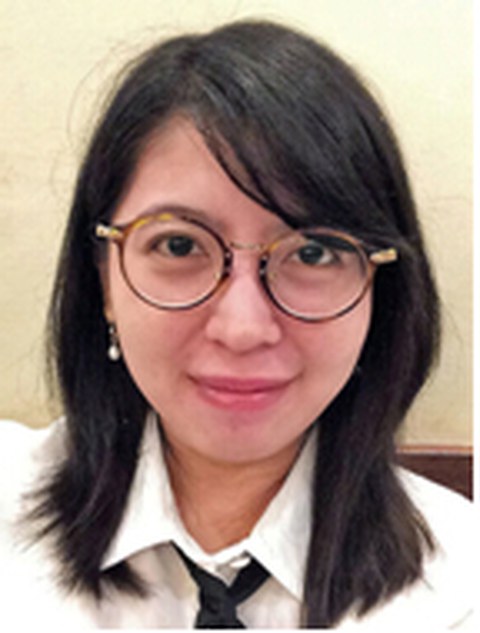
Ms Arie Fahmiyati
Country of origin: Indonesia
Workfield: Ministry of Environment and Forestry
Position while attending the course: Analyst of Water Ecosystem Services in Conservation Forest at Ministry of Environment and Forestry Directorate of Ecosystem Services in Conservation Area, Bogor
Academic background: M.Sc. in Environmental Sciences
Responsibilities:
► Assessing proposals from private sector to use water resources for commercial purposes;
► Monitoring and evaluating the implementation of water use;
► Composing draft of regulation related with water resources in conservation forest.
Ms Andrea González Quirós
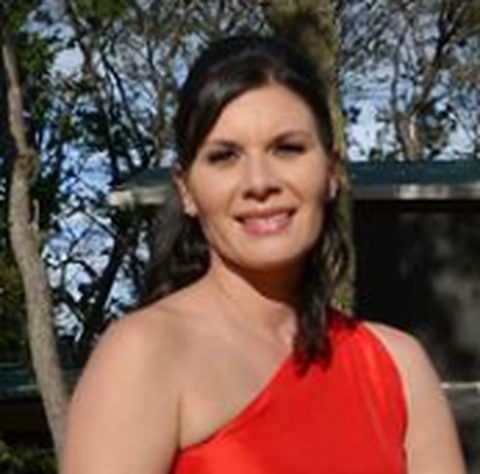
Ms Andrea González Quirós
Country of origin: Costa Rica
Workfield: Environmental management, environmental consultant for institutional environmental management system
Position while attending the course: Environmental Management Officer at Compañía Nacional de Fuerza y Luz (CNFL)
Academic background: M.Sc. in Environmental Management and Ecotourism
Responsibilities:
► Monitoring biological indicators to trigger new strategies for environmental
protection, in the search for alternatives for the reduction of environmental
impacts related to the activities of the organization and in the continuous
improvement of a more respectful administration with the environment.
Profile:
Andrea González Quirós is working on a Conservation Ecosystem Programme as an area of environmental management and natural resources in Electric Company, in Central America, Costa Rica. She is involved in the co-planification and implementation of activities on wildlife, specially, monitoring aquatic and terrestrial fauna (fishes, microinvertebrates, birds, mammals, etc). Andrea also works on issues related to identify the environmental aspects and impacts of the different areas of this public institution to support the environmental management system according to the environmental standards INTE ISO 14001:2015, as well as to generate actions of improvement to prevent the affection on wildlife.
In this context, the Fellowship Programme has been a good opportunity for her, because it enables her to think in other ways to improve and take advantages of all the knowledge given to the biodiversity conservation expanding with ecosystem services. Andrea is an environmental educator so she was postulated and has been awarded a fellowship by the Ministry of Environment of Chile “in Enviromental Education as a space to development”.
Ms Channimol Ky
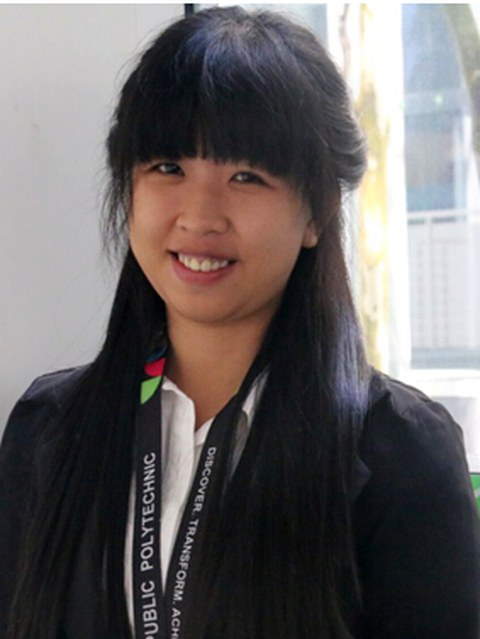
Ms Channimol Ky
Country of origin: Cambodia
Workfield: Ministry of Environment
Position while attending the course: Officer of General Directorate of Administration for Nature Conservation and Protection
Academic background: B.A. in Environmental Science
Responsibilities:
► Research tasks and writing diary report about illegal logging, wildlife hunting in protected areas;
► Working with administrative department to organize workshops and training related to natural resources conservation and protection.
Profile:
Channimol Ky is an officer of ministry of Environment who works under the General Department of Administration for Nature Conservation and Protection. She is working in the second sub-department which covers 12 protected areas in Mondulkiri, Ratanakiri, Stung Treng and Kratie Provinces. Channimol is responsible for collecting illegal logging and wildlife hunting data and for the data collection on wildlife and socio-economic status in all protected areas. Moreover, she is an organizer for local and national workshops and training about law enforcement and capacity building for rangers. Furthermore she participates in National Forest Inventory in REDD context. Recently, together with her colleagues she also participated in the CAMPAS project which aims to strengthen national biodiversity and forest carbon stock conservation though landscape-based collaboration management of Cambodia's Protected Area System as demonstrated in the Eastern Plains Landscape.
In her present position as an officer of ministry of Environment, Channimol will try her best to increase and promote stakeholders’ awareness and knowledge on the Convention and their working programs and plans by integration of biodiversity conservation in national, ministerial, and local plans. Her long term goal is to use her experiences to empower communites in protected areas to create an ecotourism based on natural resources in their area in order to create other sources of income for them and conserves natural resources in those protected areas.
Ms Silvia Anaite Lopez Alquijay
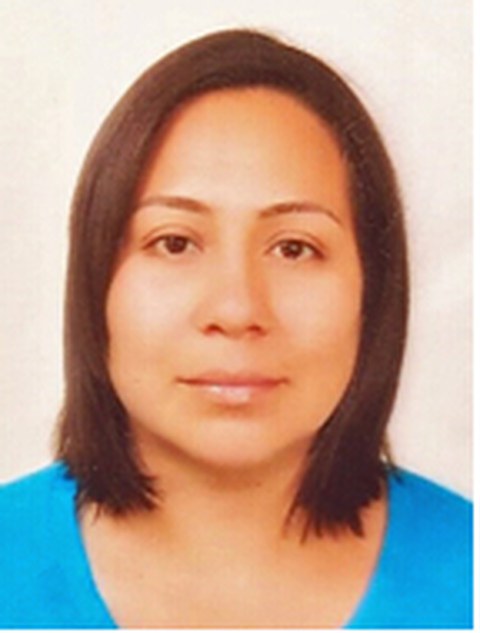
Ms Silvia Anaite Lopez Alquijay
Country of origin: Guatemala
Workfield: Fed./nat. administration
Position while attending the course: Head of Department at Instituto Nacional de Bosques (National Forest Institute) Guatemala City
Academic background: B.Sc. in Biology
Responsibilities:
►Elaborating institutional documents for the management, conservation and restoration of strategic forest ecosystems and protected areas under the administration of the Institution.
Mr Aye Chan Maung
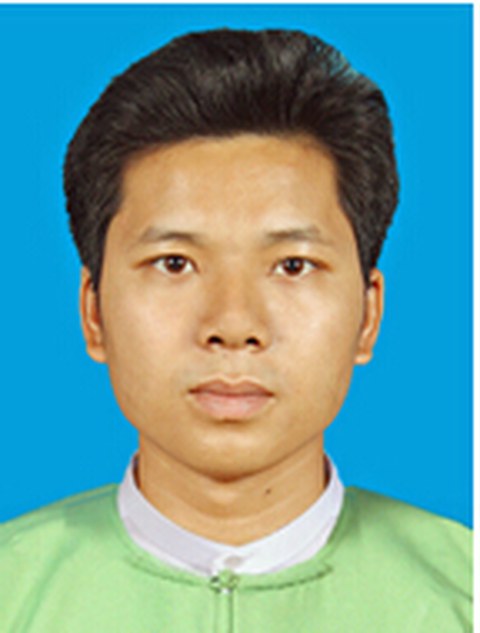
Mr Aye Chan Maung
Country of origin: Myanmar
Workfield: Fed./nat. administration
Position while attending the course: Range Officer at Forest Research Institute
Yezin, Nay Pyi Taw
Academic background: B.Sc. Environmental Studies - Community Development
Responsibilities:
► Supporting the director of the Forest Research Institute under his direct supervision;
► Involved in the process of developing a national REDD+ strategy for Myanmar;
► Participating in research activities.
Mr Tatenda Mutasa
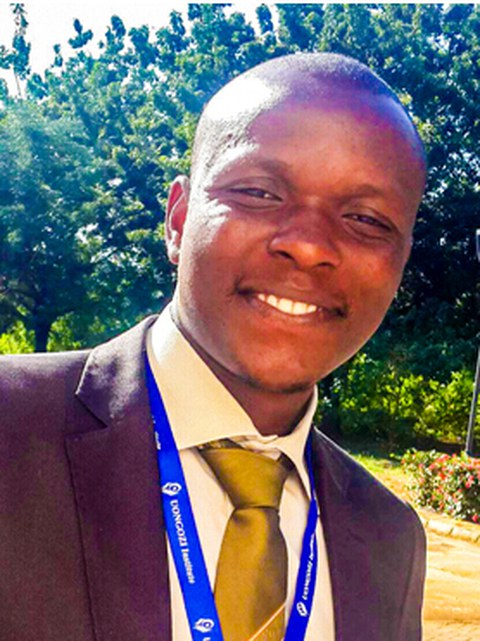
Mr Tatenda Mutasa
Country of origin: Zimbabwe
Workfield: Climate Change and Environmental Protection
Position while attending the course: Climate Change Scientist at Ministry of Environment, Water and Climate Harare
Academic background: M.Sc. in Natural Resources Management and Environmental Sustainability
Responsibilities:
► Implementing climate change adaptation and mitigation projects;
► Climate change education, training and awareness;
► Climate Change research;
► Climate change policy formulation and development of climate response strategies.
Profile:
Tatenda Mutasa works for the Government of Zimbabwe in the Ministry of Environment, Water and Climate as a Climate Change Scientist. His duties include implementation of climate change adaptation and mitigation programmes; climate change and environmental policy and action plans formulation and implementation; and climate change research, education and public awareness, among others. Tatenda has also been working as a Researcher with research focus on climate change, environmental management and livelihoods enhancement. Tatenda applied for the UNEP/UNESCO/BMUB course to enhance his prowess in biodiversity and ecosystem management for the benefit of his country. Specifically his intentions were to share best practices with colleagues from other countries, to be aware of threats and challenges associated with ecosystems in a changing climate and to come up with ways to manage them. He also aimed to learn about international policies and conventions on ecosystem management and biodiversity conservation, gather knowledge to inform policy and legislation in Zimbabwe and identify potential research areas for his own career development.
Mr Nitas Nunsong
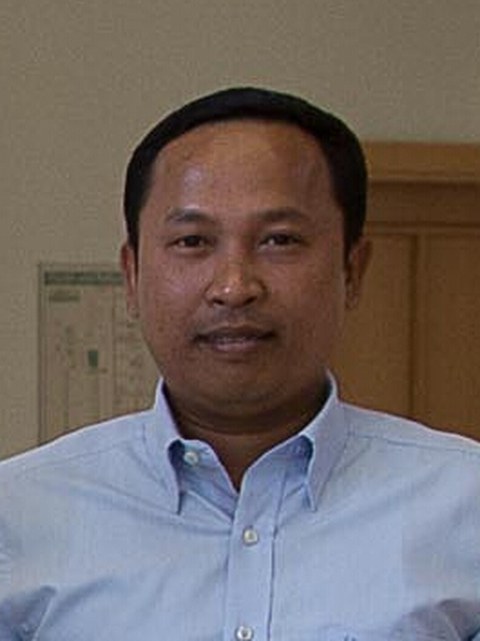
Mr Nitas Nunsong
Country of origin: Thailand
Workfield: Forestry
Position while attending the course: Forestry Technical Officer at Department of National Parks, Wildlife and Plant Conservation Bangkok
Academic background: M.Sc. in Parks and Recreation
Responsibilities:
► Research in the field of ecology, environmental science, forest conservation, biodiversity, land use planning, and community conservation;
►Education and sharing knowledge on forestry, natural resource conservation and management to rural communities.
Profile:
Nitas Nunsong is working as a Forestry Technical Officer, Professional Level in Department of National Parks, Wildlife and Plant Conservation (DNP) in Bangkok, Thailand. He is involved in research in the field of ecology, biodiversity, forest conservation and land use planning. Nitas is interested in methodologies from the natural and social sciences methodologies of assessing and valuing ecosystem services in different societal contexts and convey basics of biodiversity and ecosystem governance. This knowledge could be applied in his research and projects to encourage communities to realize the forest ecosystem, functions and services, and the impacts of deforestation. Furthermore it could support the development of forest conservation and integrated watershed management in Thailand.
Ms Eunice Okyere-Agyapong

Ms Eunice Okyere-Agyapong
Country of origin: Ghana
Workfield: Fed./nat. administration
Position while attending the course: Station Manager / Senior Technologist at Forestry Research Institute of Ghana Kumasi
Academic background: B.Sc. in Natural Resources Management
Responsibilities:
► Implementing planned activities following management plans of the scientists concerned;
► Ensuring proper maintenance of research plots, data collection and protection of station against potential encroachment.
Profile:
Currently, Eunice Okyere-Agyapong serves as the team leader for one of the seven strategic research out-stations for CSIR-FORIG. She is implementing biodiversity research activities per management plans of scientists. Data collection and maintenance of research plots are part of her tasks. Eunice manages the station’s human and material resources, plus other physical facilities. For instance, she develops strategies to protect the demarcated land against encroachment. Her employer, CSIR-FORIG, undertakes demand driven research, builds capacity and promotes the application of technologies for sustainable management of forest resources for the benefit of society (www.csir-forig.org.gh).
Eunice applied to the UNEP/UNESCO/BMUB course because she wanted to acquire new knowledge to improve her performance at work. Now she is well informed about biodiversity concepts and ecosystem functioning and services, its governance, threats, evaluation, monitoring and management. Participation in this course has equipped her with the skill to identify the biodiversity research potential, develop economic instruments for valuation and payment for ecosystem services. Eunice is glad that her expectation have been met. Additionally, the course gave her the opportunity to network, increase her visibility and establish personal connections with other people. Earlier in her career, Eunice raised 100,000 tree seedlings for reforestation projects in degraded Forest Reserve in Ghana. Through teamwork an area of 200ha was planted. The project was funded by Ghana’s Forestry Commission and implemented by CSIR-FORIG.
Ms Peng Huifang

Ms Peng Huifang
Country of origin: China
Workfield: Federal/National administration
Position while attending the course: Deputy Director at Department of Nature and Ecology Conservation, Ministry of Environment, Beijing
Academic background: M.Sc. in Geopgraphy
Responsibilities:
► In charge of biodiversity and species resource conservation and management at national level;
► ABS focal point of China, to coordinate and organize the Chinese governmental delegation to participate in the negotiations of the Convention on Biological Diversity and Nagoya Protocol.
Mr Fernando Andres Perez Chanduvi
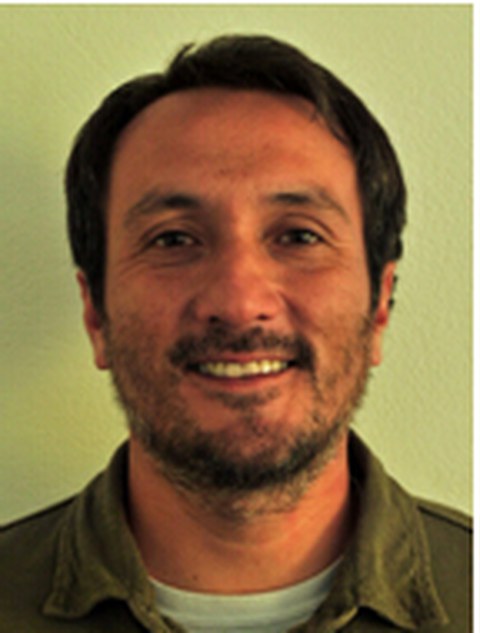
Mr Fernando Andres Perez Chanduvi
Country of origin: Peru
Workfield: Fed./nat. NGO
Position while attending the course: Natural Resources and Environmental Management Specialist at Wildlife Conservation Society (WCS) Lima
Academic background: M.Sc. Ecotourism
Responsibilities:
► Development of proposals for natural resources management projects;
► Implementation of conservation modalities and environmental
management instruments in districts that host priority sites
for conservation of the biological diversity of Puno, Peru.
Mr Diego Alonso Portugal Del Pino (Guest student)
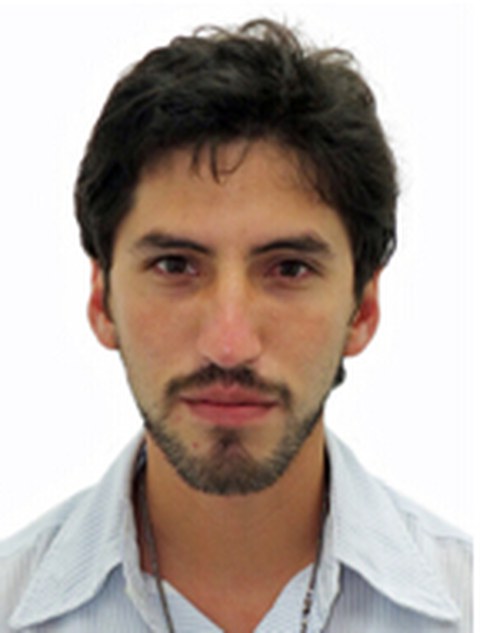
Mr Diego Alonso Portugal Del Pino
Country of origin: Peru
Workfield: Regional NGO
Position while attending the course: Co-Founder Ficus Peru Desarrollo Socioambiental Lima 33
Academic background: M.Sc. Sustainable Resource Management
Responsibilities:
► I am the Co-Founder of Ficus Peru Desarrollo Socioambiental and with
my colleague we have built a team of 6 people and are currently developing
two projects in Lima, Peru, My function also relies in obtaining enough
funding for projects to implement. We have won three grants so far.
Ms Lamina Vatosoa Ratovonasy
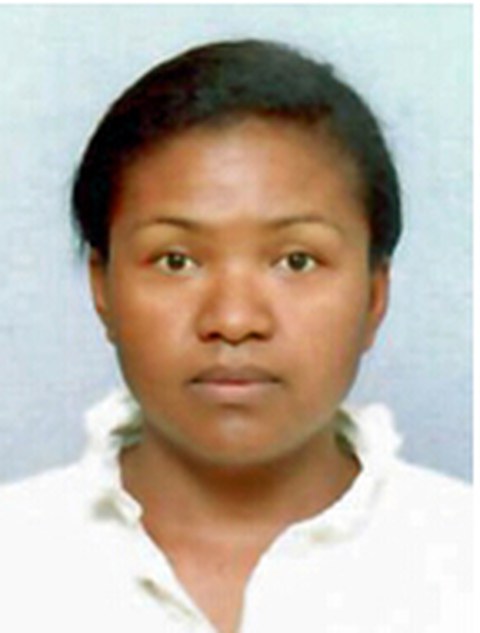
Ms Lamina Vatosoa Ratovonasy
Country of origin: Madagascar
Workfield: Environmental and forests management
Position while attending the course: Technical Assistant, General Secretary, Ministry of the Environment, Ecology and Forests
Academic background: M.Sc. in Tropical Ecosystems Management
Responsibilities:
► Ensure the technical activities at the General Secretary level;
► Sometimes represents the General Secretary of the Ministry at key events or technical meetings.
Profile:
Lamina Vatosoa Ratovonasy is working for the Ministry of Environment, Ecology and Forests in Madagascar since 2009. Currently, she is one of the technical assistants of the Secretary General which is the responsible of all the technical and administrative activities of the whole Ministry. This Ministry is mainly in charge of the management of natural resources including all types of ecosystems and the environment protection.
Lamina was interested in the UNEP/UNESCO/BMUB short course on ecosystem management because of her professional and personal involvement in the management of nature. In her job Lamina is asked to comment documents or assess activities related to biodiversity and ecosystem services. Thus, knowledge and experience through her participation in this course will help her to ensure her responsibilities. The lectures inspired her to focus her future activities on topics like pollination, food trees and land management.
During the last two years, Lamina has been engaged on writing the frameworks for the national diploma and certificate for all technical capacity buildings inside the Ministry. In a few months, she will work on the Desertification Platform within the African Union Semi-Arid Food Grain Research and Development AU SAFGRAD.
Ms Afag Rizayeva
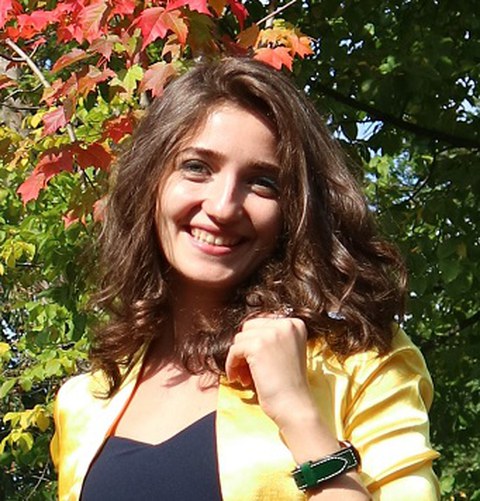
Ms Afag Rizayeva
Country of origin: Azerbaijan
Workfield: Regional NGO
Position while attending the course: Senior Specialist at International Dialogue for Environmental Action (IDEA) Public Union Baku
Academic background: M.Sc. Bioecology
Responsibilities:
► Implementation and managing the projects on Caucasian leopard (Panthera Pardus Ciscaucasica) and European bison (Bison Bonasus) reintroduction to Greater Caucasus mountains,
► Recovery of the sturgeon population in the Caspian Sea.
Ms Sofia Sadogurska
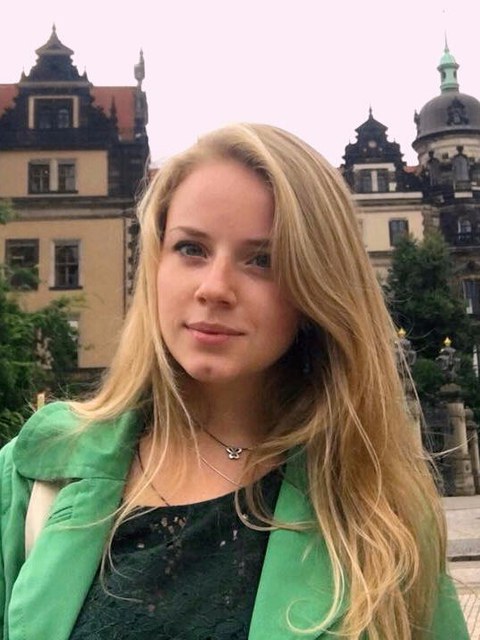
Ms Sofia Sadogurska
Country of origin: Ukraine
Workfield: Climate Change, Marine Biology
Position while attending the course: Coordinator of Climate Change Project at Center for Environmental Initiatives Ecoaction (NGO Ecodiya)
Academic background: M.Sc. Botany
Responsibilities:
► Integrating climate change issues into Ukrainian government policies and monitoring the implementation of international conventions on climate change and biodiversity protection;
► Developing strategies and assisting
in controlling projects in the frame of the program “Climate Forum East-II”.
Profile:
Sofia Sadogurska is Coordinator of Climate Change Project at Center for Environmental Initiatives Ecoaction. The Center aims to integrate climate change issues into Ukrainian government policies and monitor the implementation of International Conventions on Climate Change and Biodiversity Protection. It takes active part in international negotiations on the reduction of greenhouse gas emissions and works with media and the general public. The center also coordinates projects on Adaptation to Climate changes, which also include activities, related to Ecosystem management and Nature Conservation in current climate realities. The last few years Sofia has been conducting research on the biodiversity of the Black Sea marine ecosystems. As specialist working in Marine Biodiversity Conservation and current PhD student of M. G. Kholodny Institute of Botany of the NASU she is working on the inclusion of marine areas in the Emerald Network of Ukraine and took part in public control of its creation.
Considering this, she felt, that she needs to deepen professional skills related to conservation and sustainable use of biodiversity, ecological restoration, and provision of ecosystem services for human well-being. Sofia is sure, that the CIPSEM course gave her this knowledge. She is going to use this information to develop modern approaches to biodiversity conservation and ecosystems management in Ukraine as NGO worker and scientist.
Mr Sonam Tashi
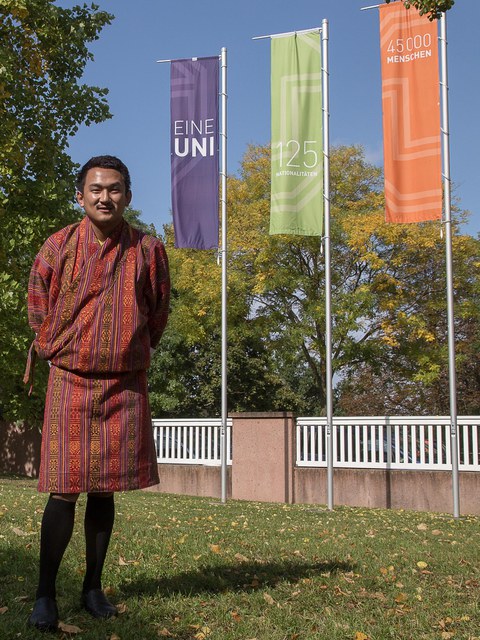
Mr Sonam Tashi
Country of origin: Bhutan
Workfield: Sustainable Forest Management and Biodiversity Conservation
Position while attending the course: Forestry Officer in Department of Forests and Park Services, Bhutan.
Academic background: M.Sc. Forestry
Responsibilities:
► Ensuring compliance with forest policy, forest act, rules and regulations including government directives through circulars, planning and management of forestry services under the agency's jurisdiction.
Profile:
Sonam Tashi feels fortunate being from a country - Bhutan - where conservation is a national priority and vibrant policies are supporting the aspiration. In line with his country’s vision of sustainability and conservation, Sonam contributes within his capacity in managing natural resources and in conservation of biodiversity as Forestry Officer under the Department of Forests and Park Services in Bumthang Forest Division, Bhutan.
In Sonam's view, foresters tend to approach from principles of forestry and much of the entities in the nature are identified differently for easier management. However, treating biodiversity as a complex system which requires an interdisciplinary approach is rudimentary in Bhutan, perhaps all over the globe. There are different stakeholders working for the management of biodiversity which needs to be bridged and moreover an integrated approach which can be provided by understanding the ecosystem and its services. Not only as mere career but Sonam is very interested in learning different aspects of biodiversity as his passion. Thid is also the reason why he applied for the UNEP/UNESCO/BMUB course program to understand more on ecosystem management so that he can gain new prospective, skills and knowledge to provide an integrated approach in his work place. In retrospect, Sonam believes he has indeed broadened his prospective towards biodiversity and ecosystem management from the course.
Ms Vanessa Wätzold Ospina (Guest student)

Ms Vanessa Wätzold Ospina
Country of origin: Colombia
Workfield: Rural and Environmental Expert with emphasis on Social-Ecological systems for developing countries.
Position while attending the course: Social-Environmental Expert
Academic background: M.Sc Tropical Forestry and Management
Profile:
Vanessa Wätzold Ospina is an international student in Dresden and attended the UNEP/UNESCO/BMUB course as a guest student. Before her studies she was working as rural and environmental consultant in local and international NGOs such as Tropenbos (TBI) and as research assistant at the Johann Heinrich von Thünen Institute. During her life, Vanessa has gained experience in social-ecological research/frameworks and participatory methodologies regarding the use and natural resources management in developing countries, focusing in the design and implementation of quantitative and qualitative methodologies. At present her focal interest and motivation is to link her professional skills with practical activities and methodologies such as rural development practices towards biodiversity conservation, to implement new tools such as environmental incentives, ecosystem services modalities and other important issues for the sustainable development goals. In this context Vanessa consideres the UNEP/UNESCO/BMUB international short course providing her with the best tools and networks to continue her professional and personal growth.
Vanessa's expectations on the course were entirely filled according to her interests and motivations as a future professional woman willing to cross barriers working for the believe that the social and environmental benefits instead to be a trade off, can be complementary and full of successful outcomes. She plans to bring the newly gathered knowledge back with her to Colombia, for the progress of new and future generations, integrating her knowledge towards innovative schemes on forestry and entrepreneurial sustainable activities.
